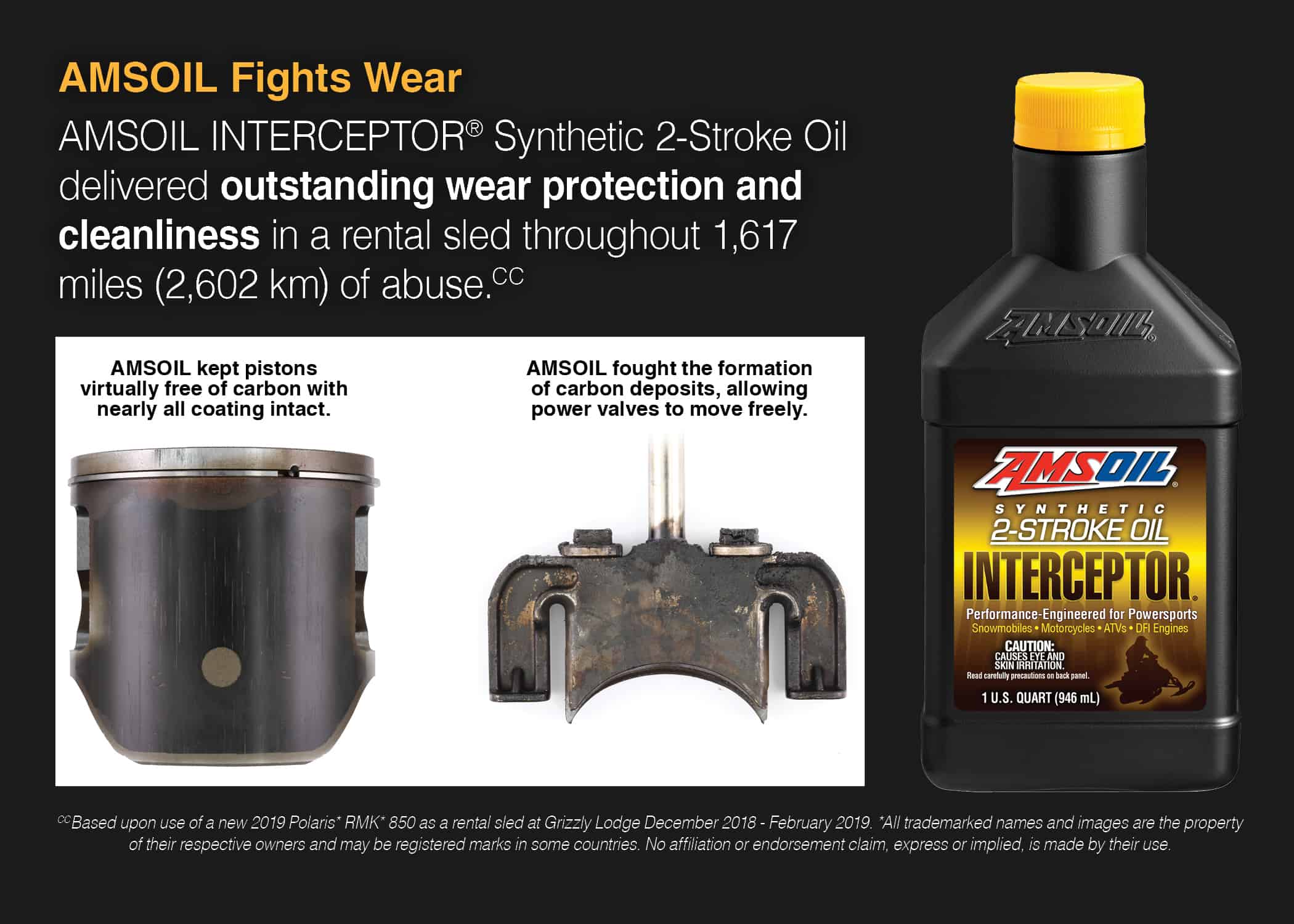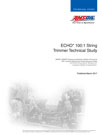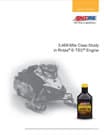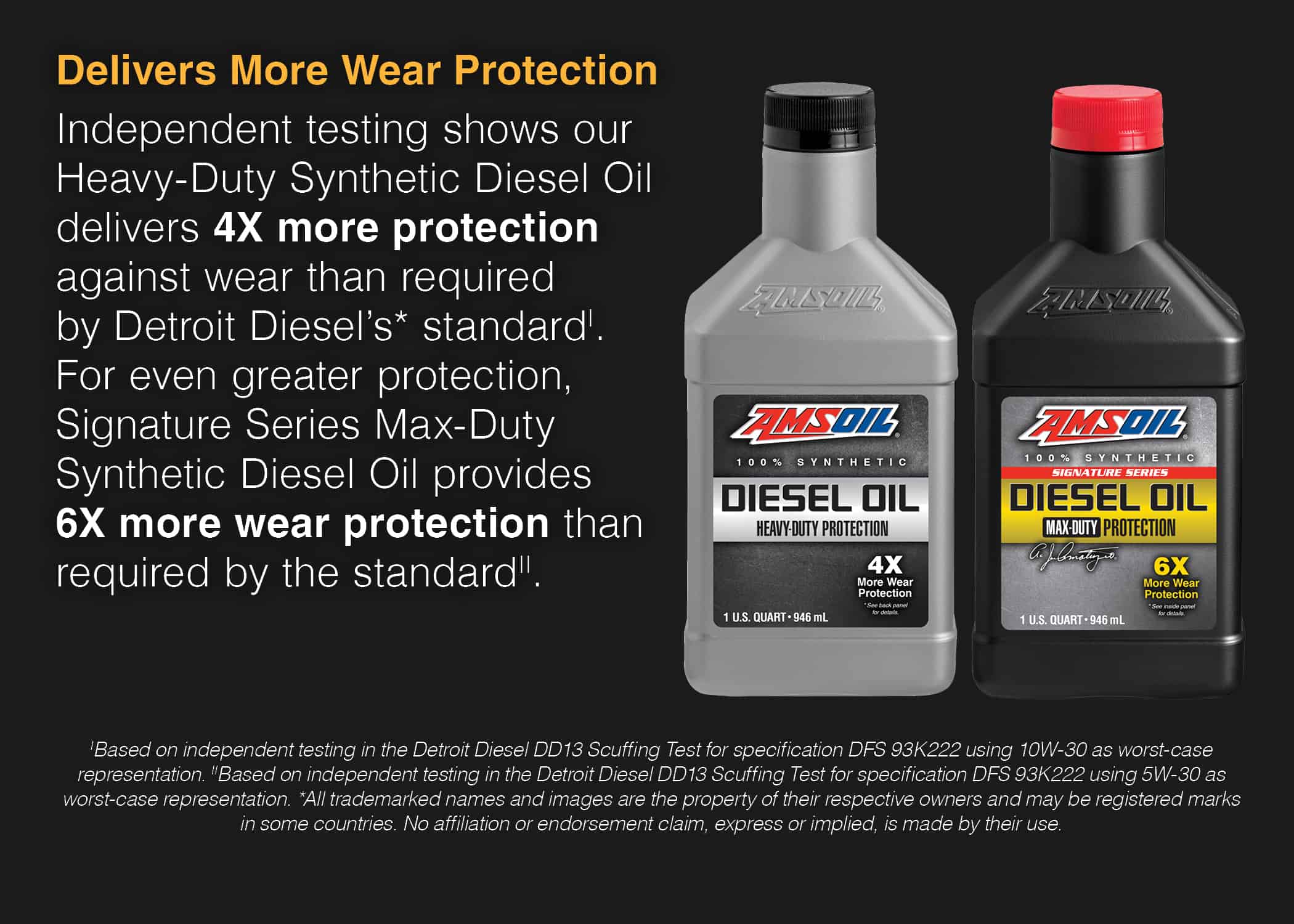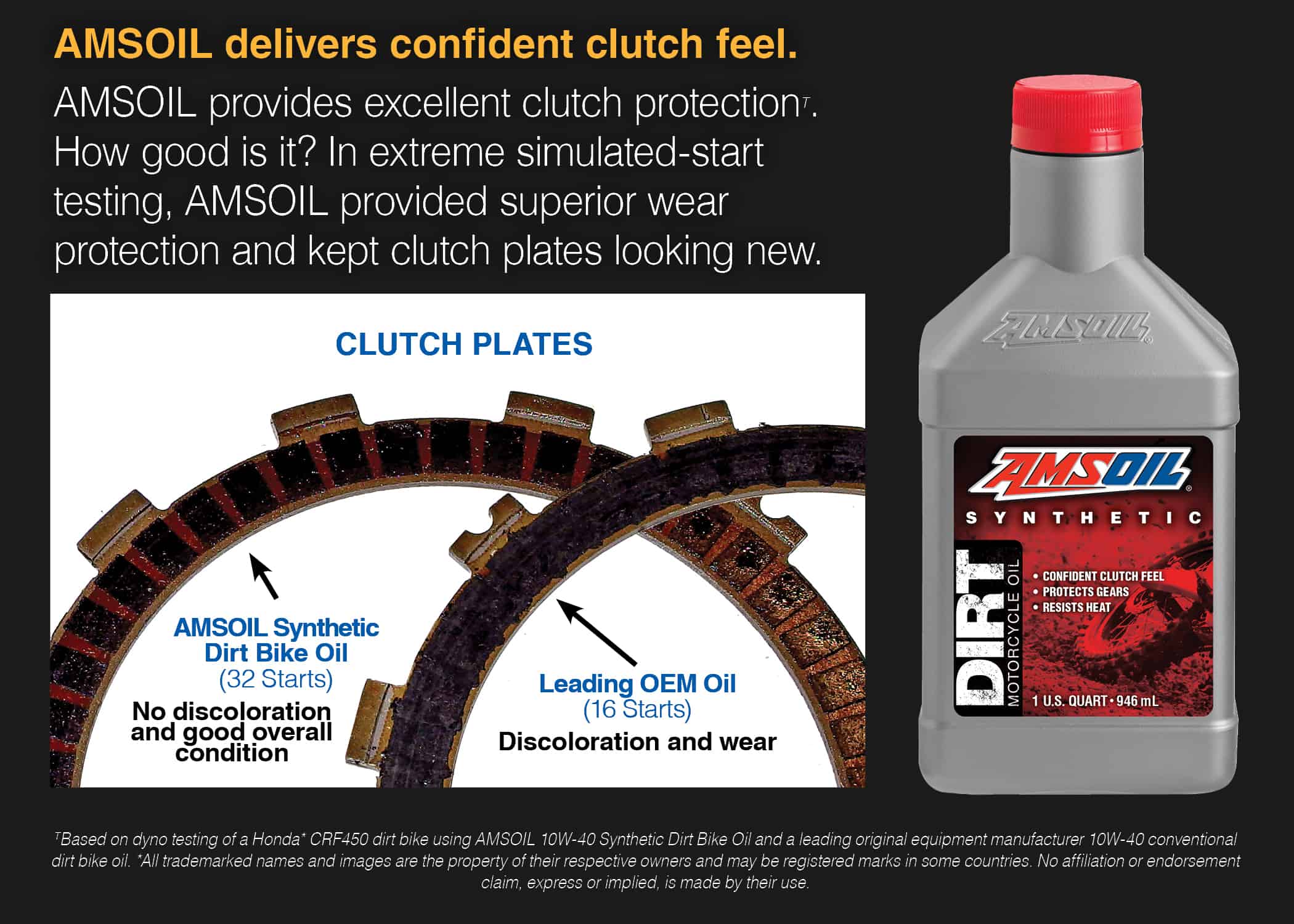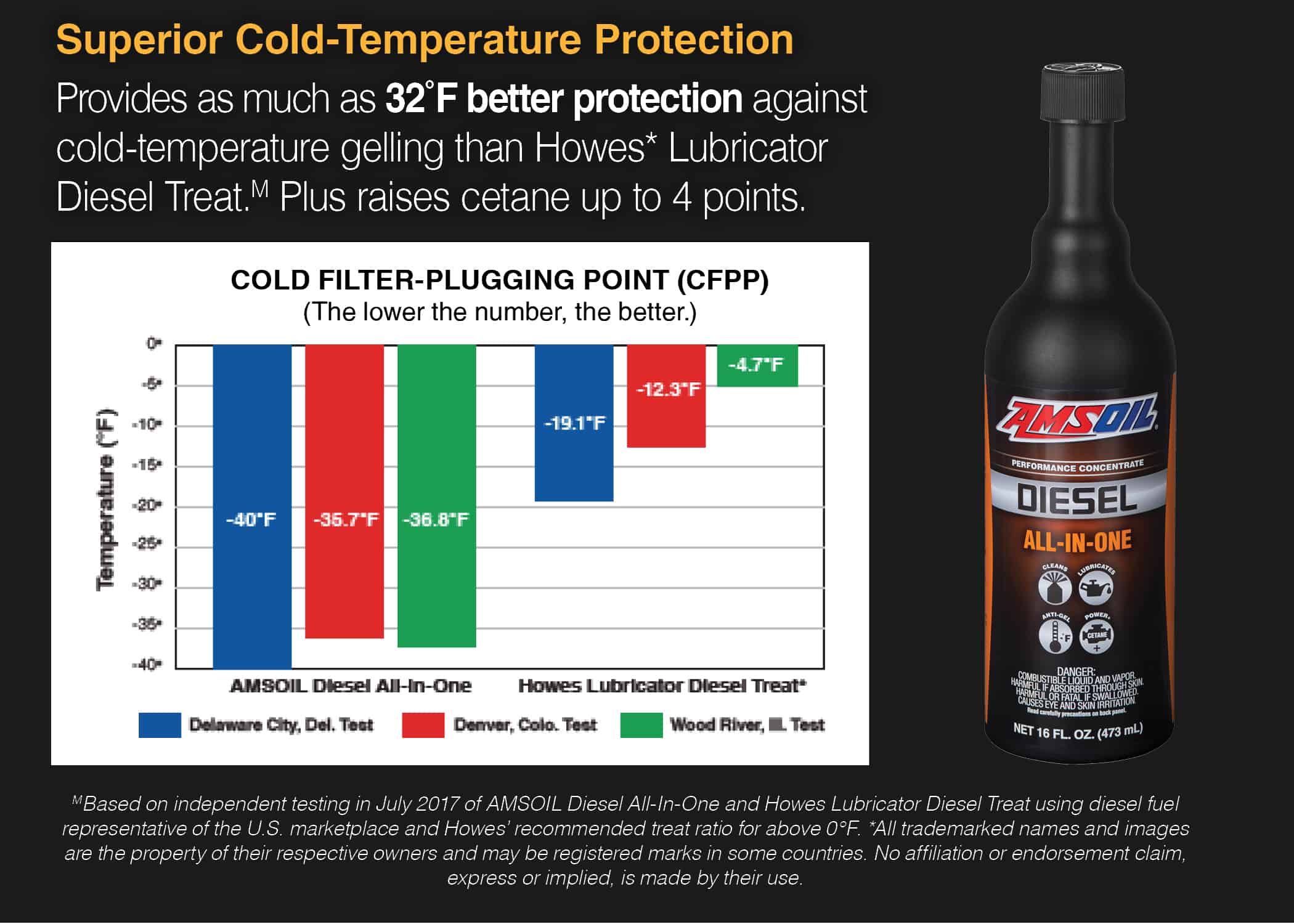AMSOIL Product Info & Performance Test
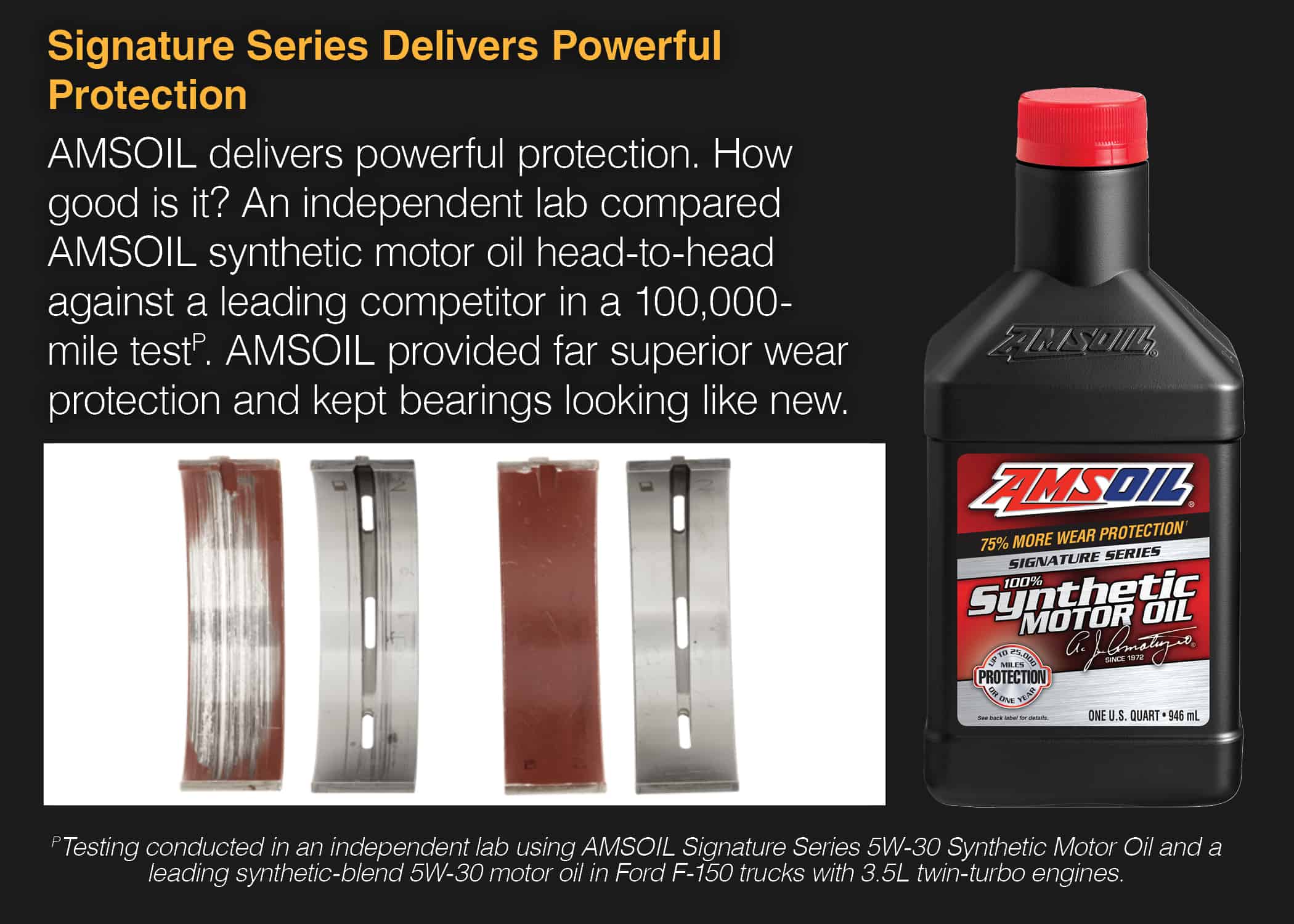
Signature Series Synthetic Motor Oil
Signature Series delivers powerful protection.
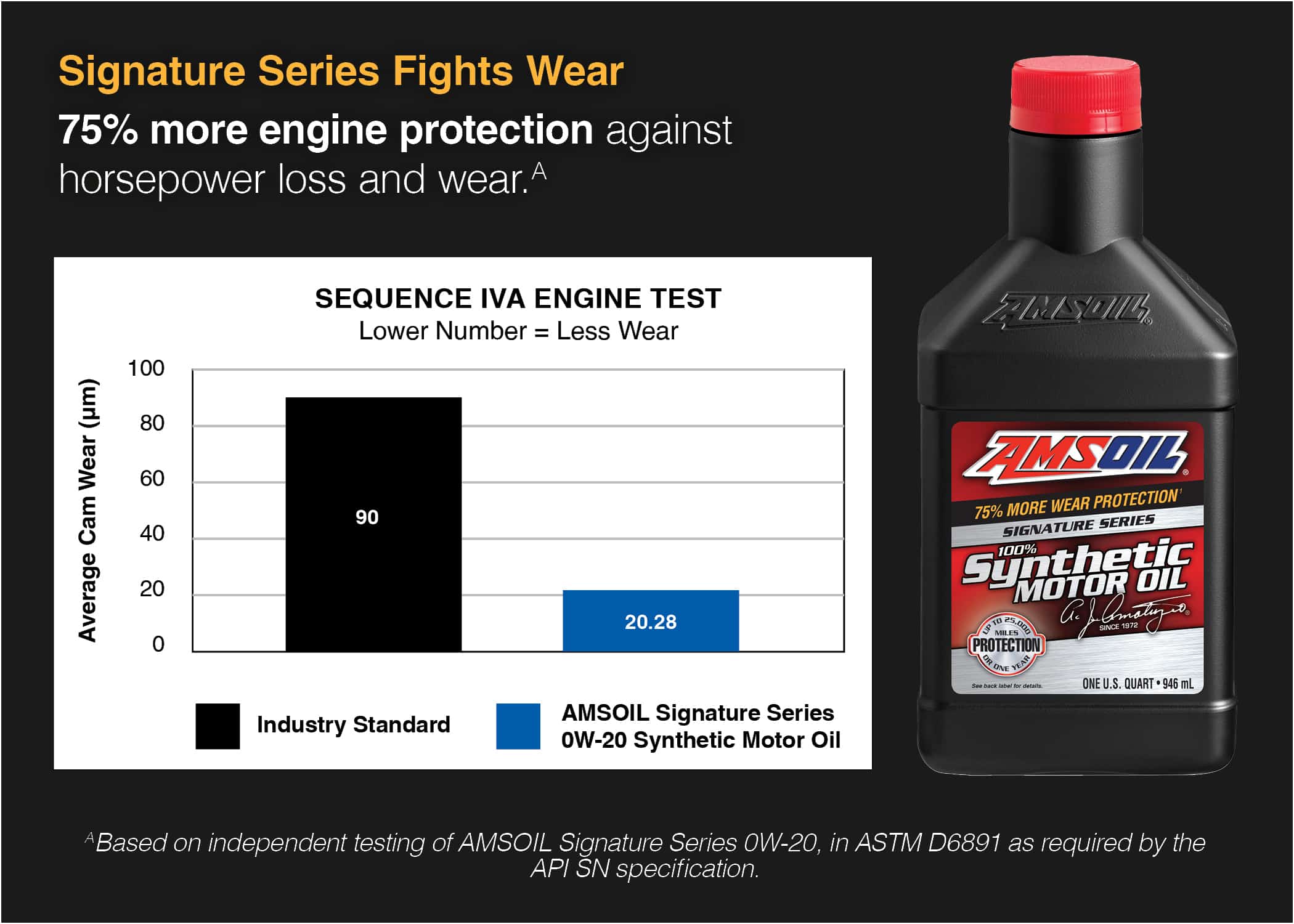
Signature Series Synthetic Motor Oil
Signature Series fights wear.
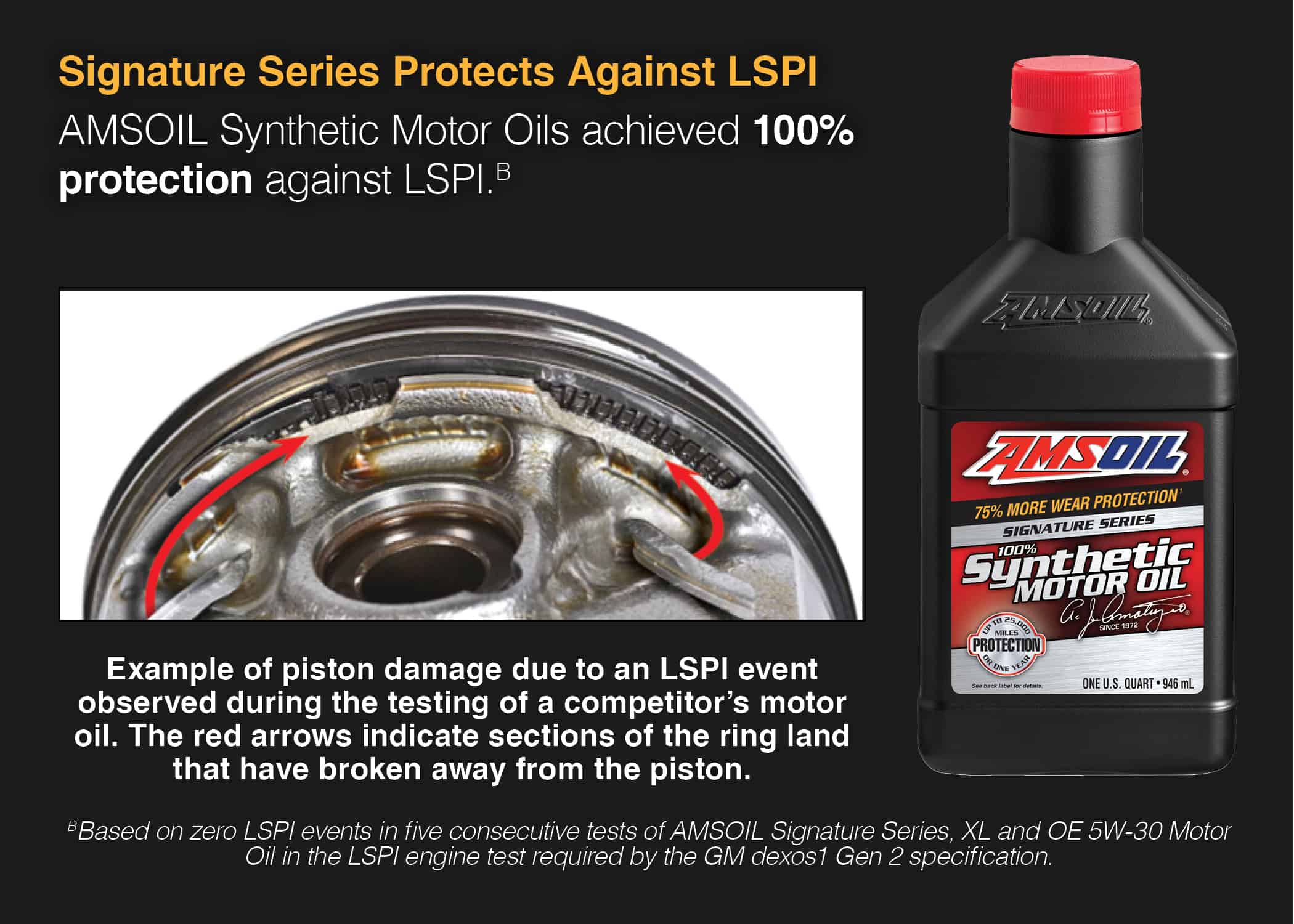
Signature Series Synthetic Motor Oil
Signature Series protects against LSPI.
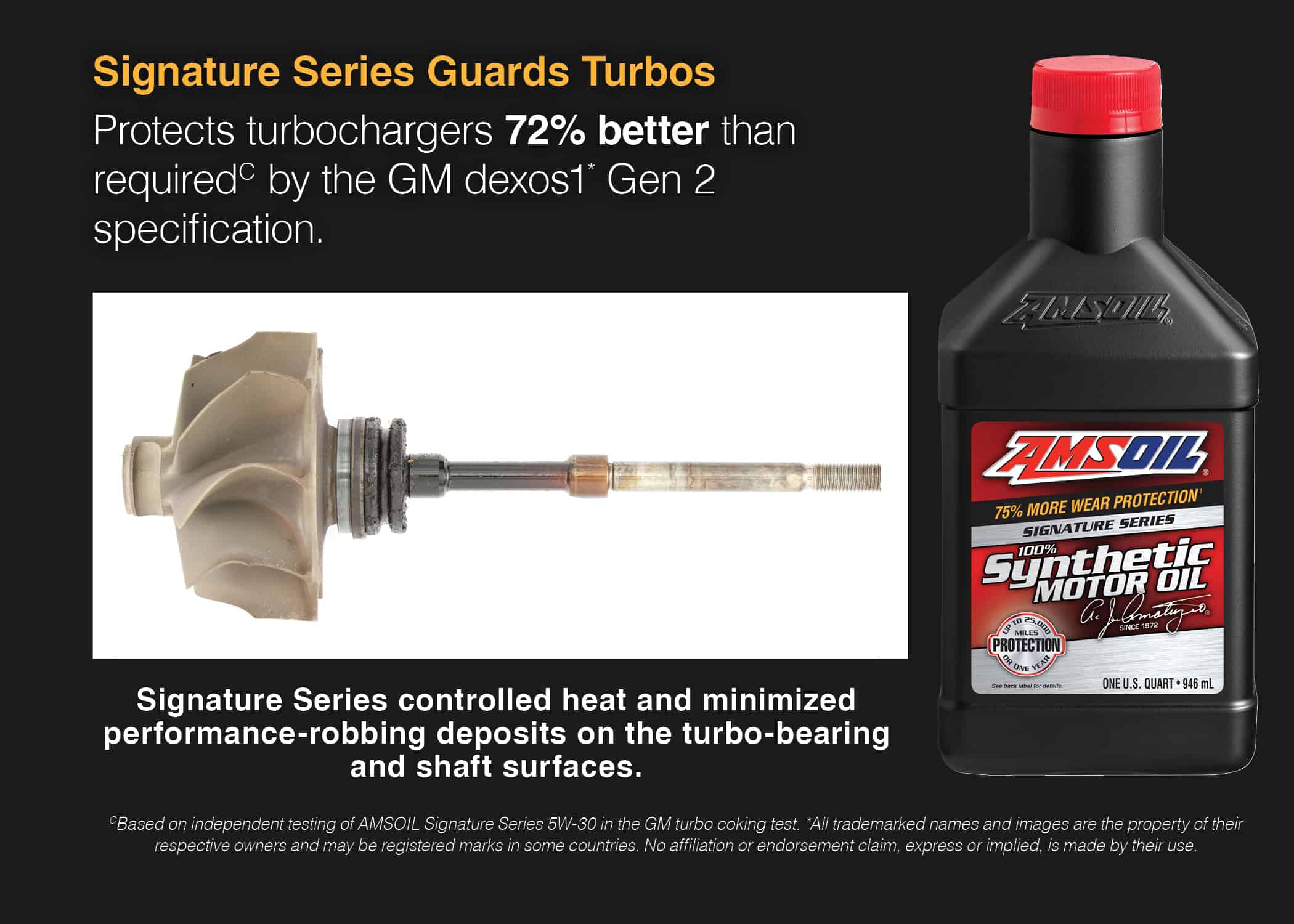
Signature Series Synthetic Motor Oil
Signature Series guards turbos.
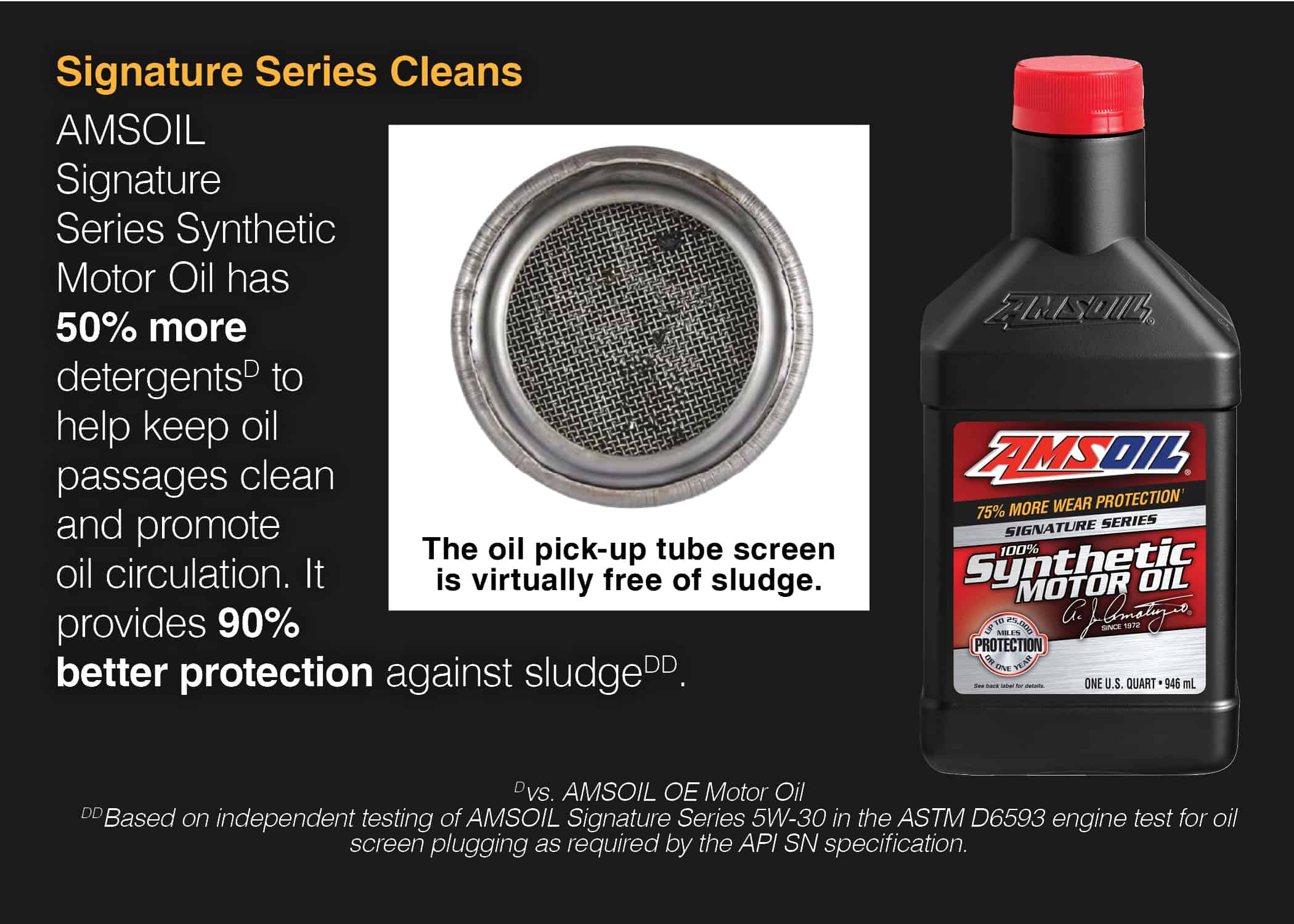
Signature Series Synthetic Motor Oil
Signature Series cleans.
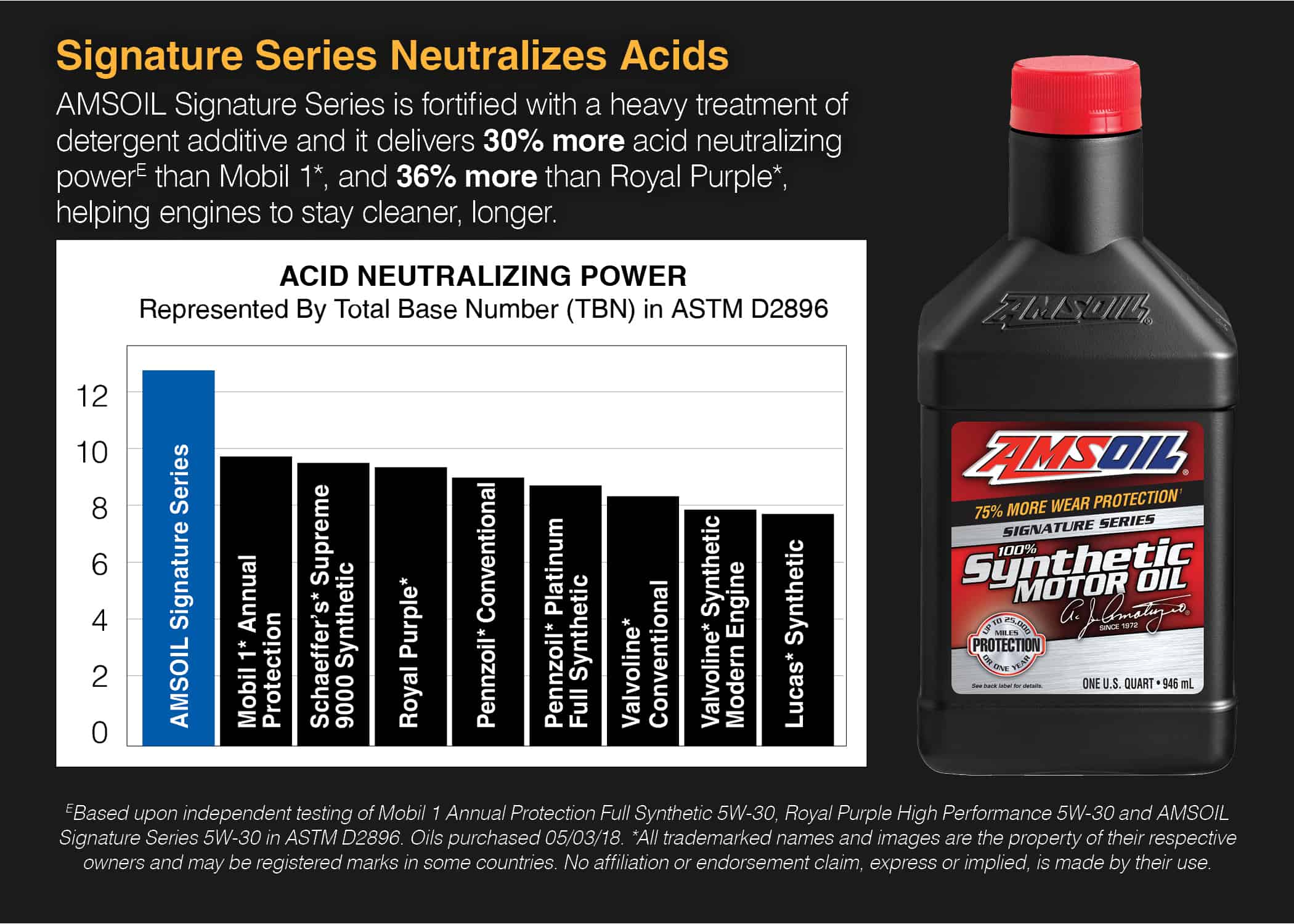
Signature Series Synthetic Motor Oil
Signature Series neutralizes acids.
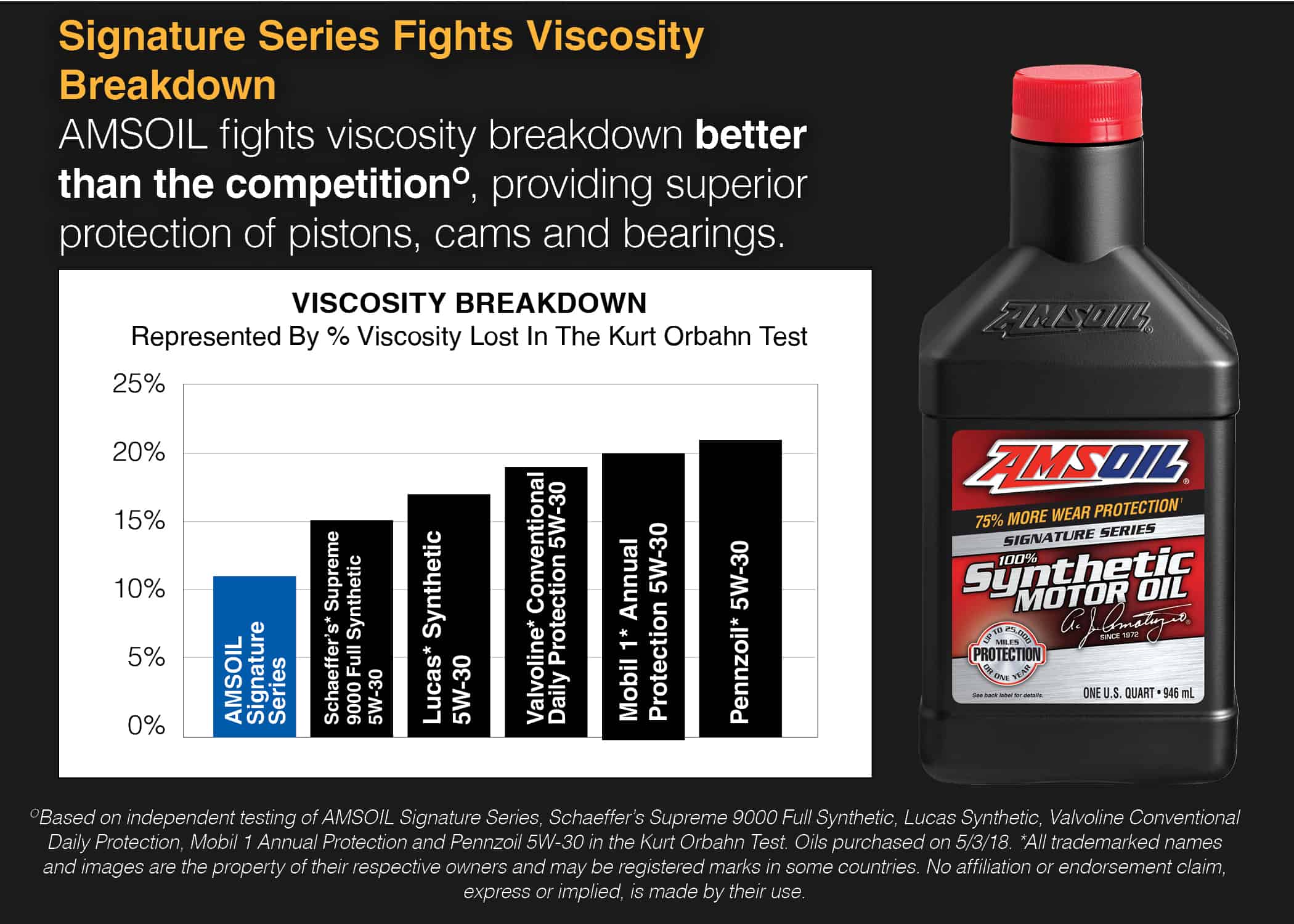
Signature Series Synthetic Motor Oil
Signature Series fights viscosity breakdown.
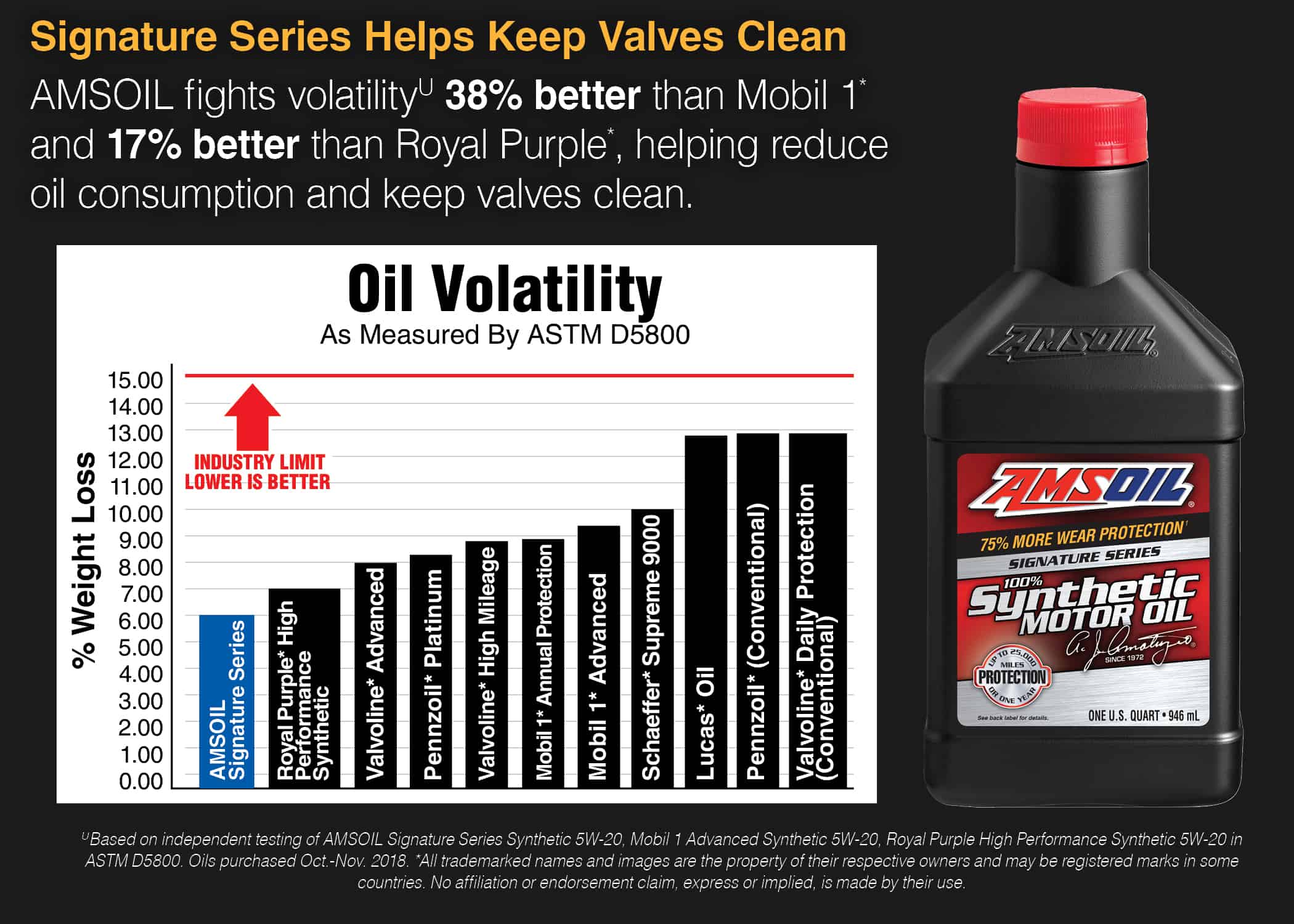
Signature Series Synthetic Motor Oil
Signature Series helps keep valves clean.
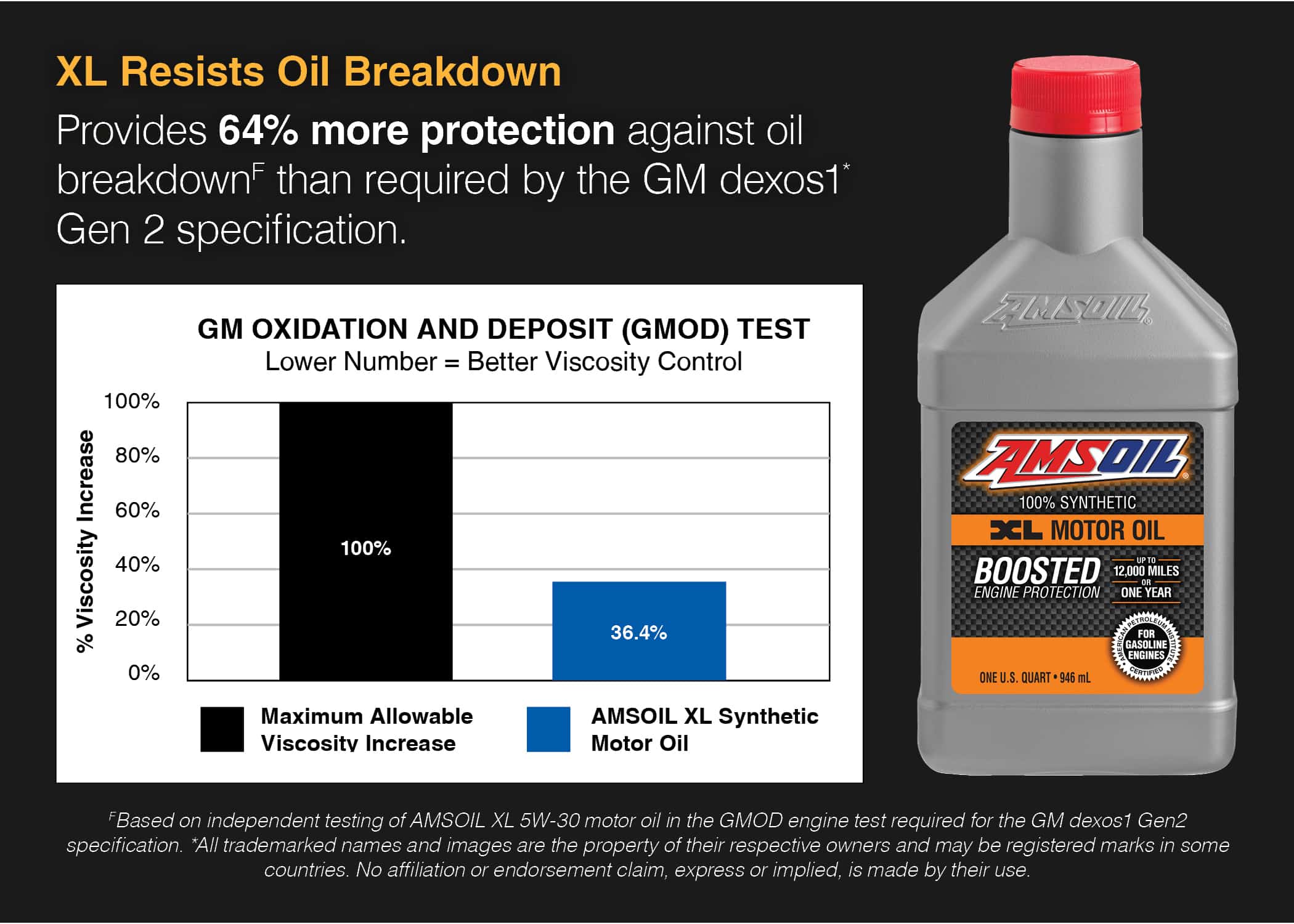
XL Synthetic Motor Oil
XL resists oil breakdown.
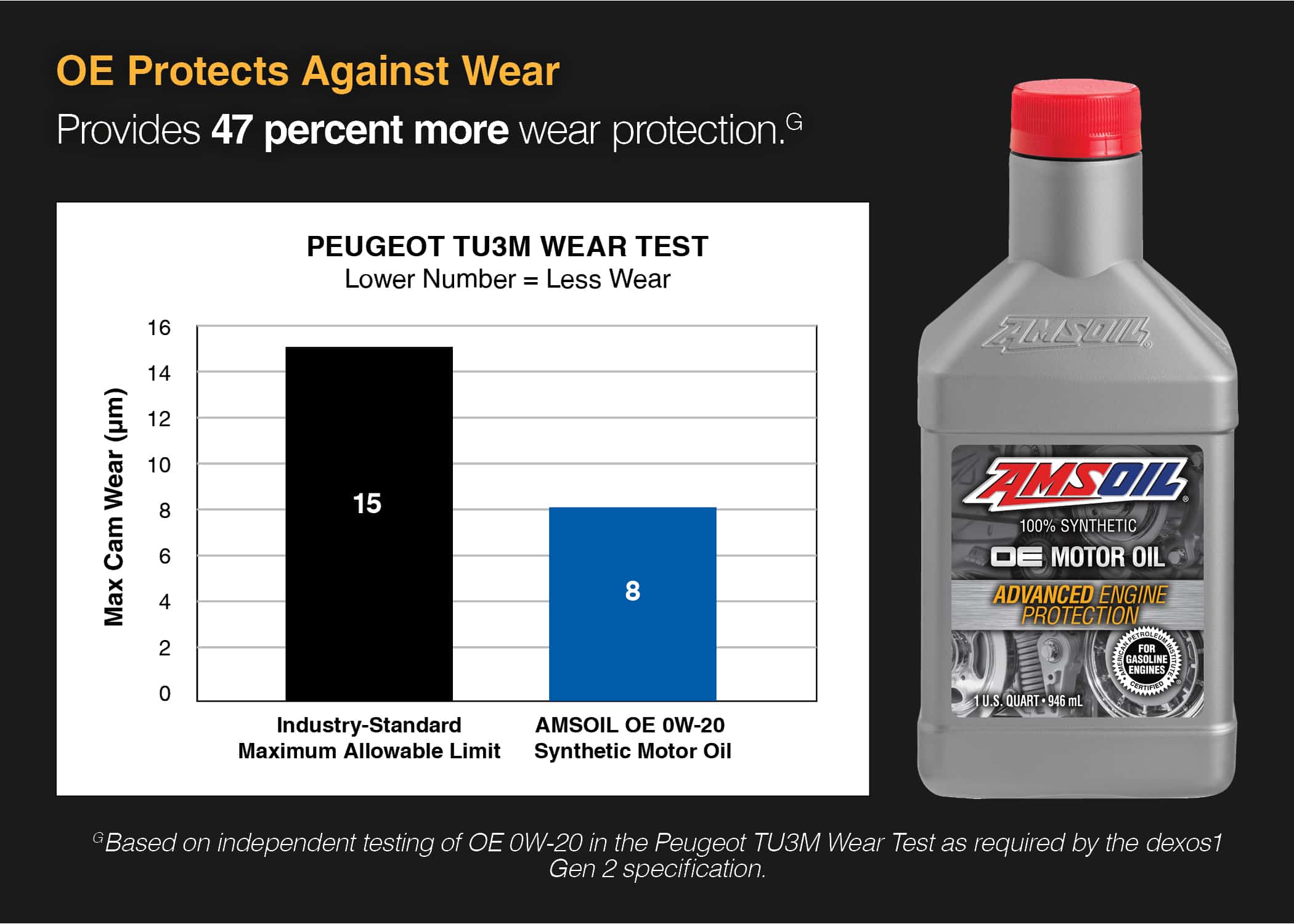
OE Synthetic Motor Oil
OE Protects against wear.
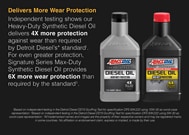
Synthetic Diesel Oil
AMSOIL synthetic diesel oil delivers more wear protection.
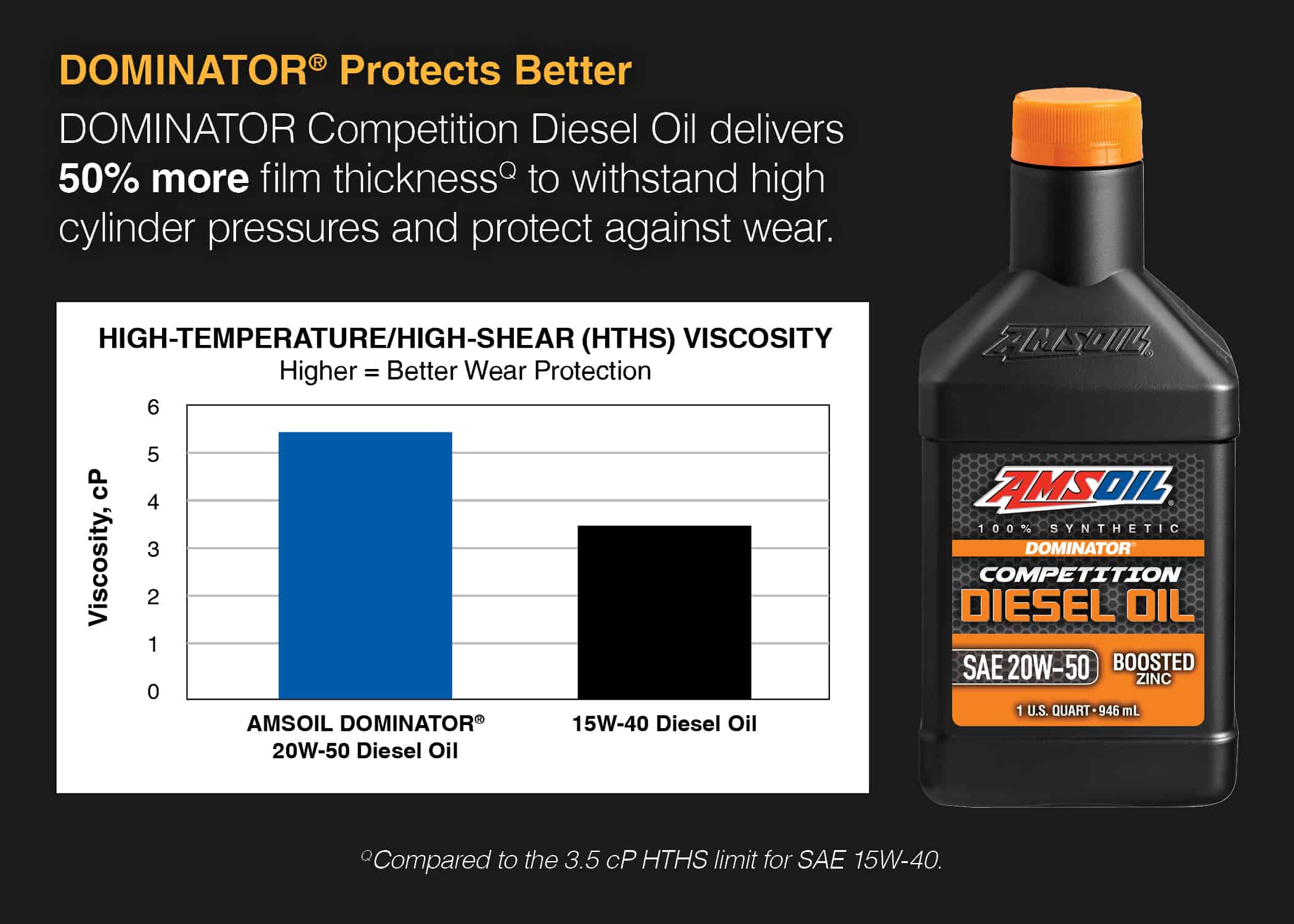
DOMINATOR® Competition Diesel Oil
DOMINATOR protects better.
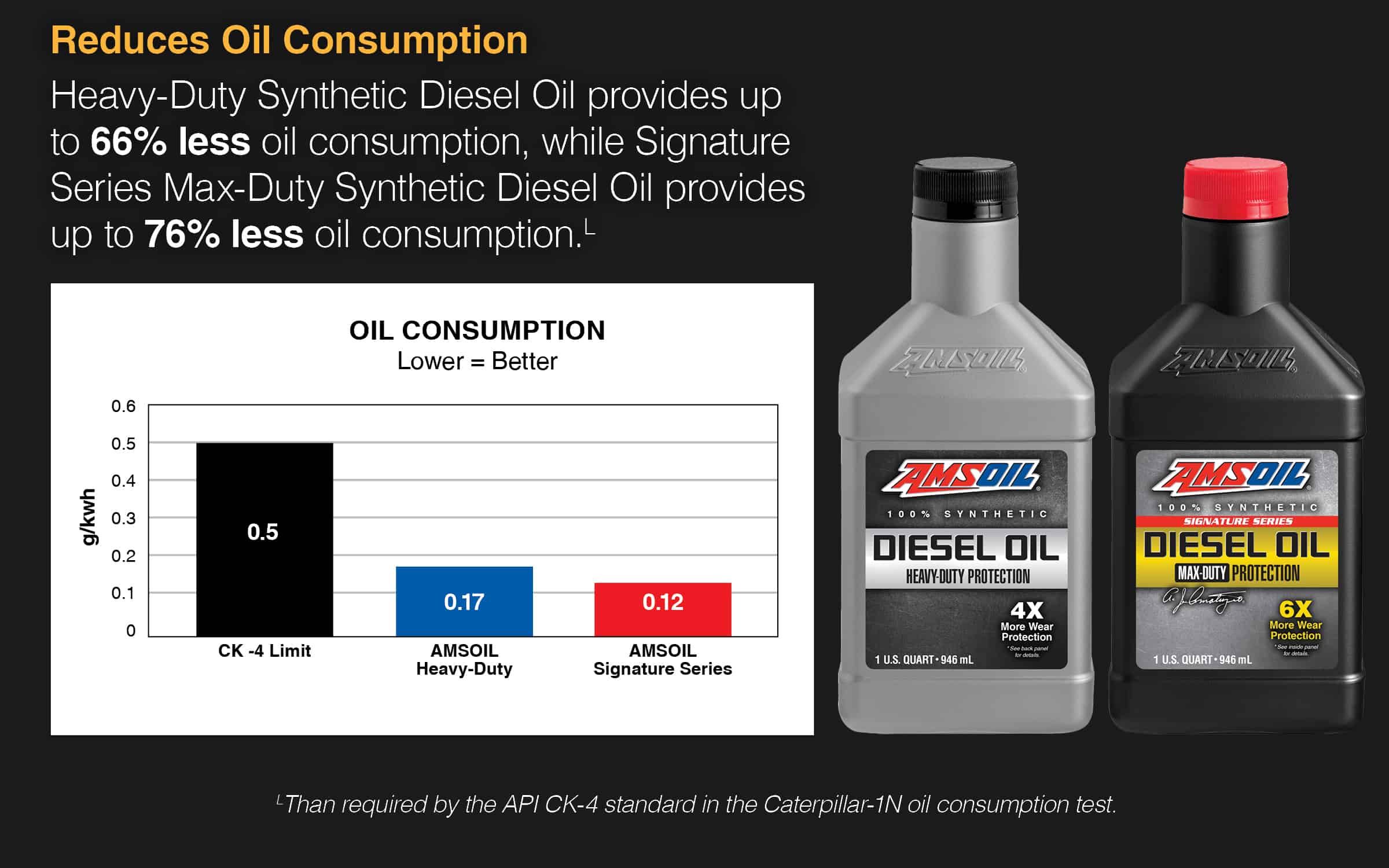
Synthetic Diesel Oil
Synthetic Diesel Oil reduces oil consumption
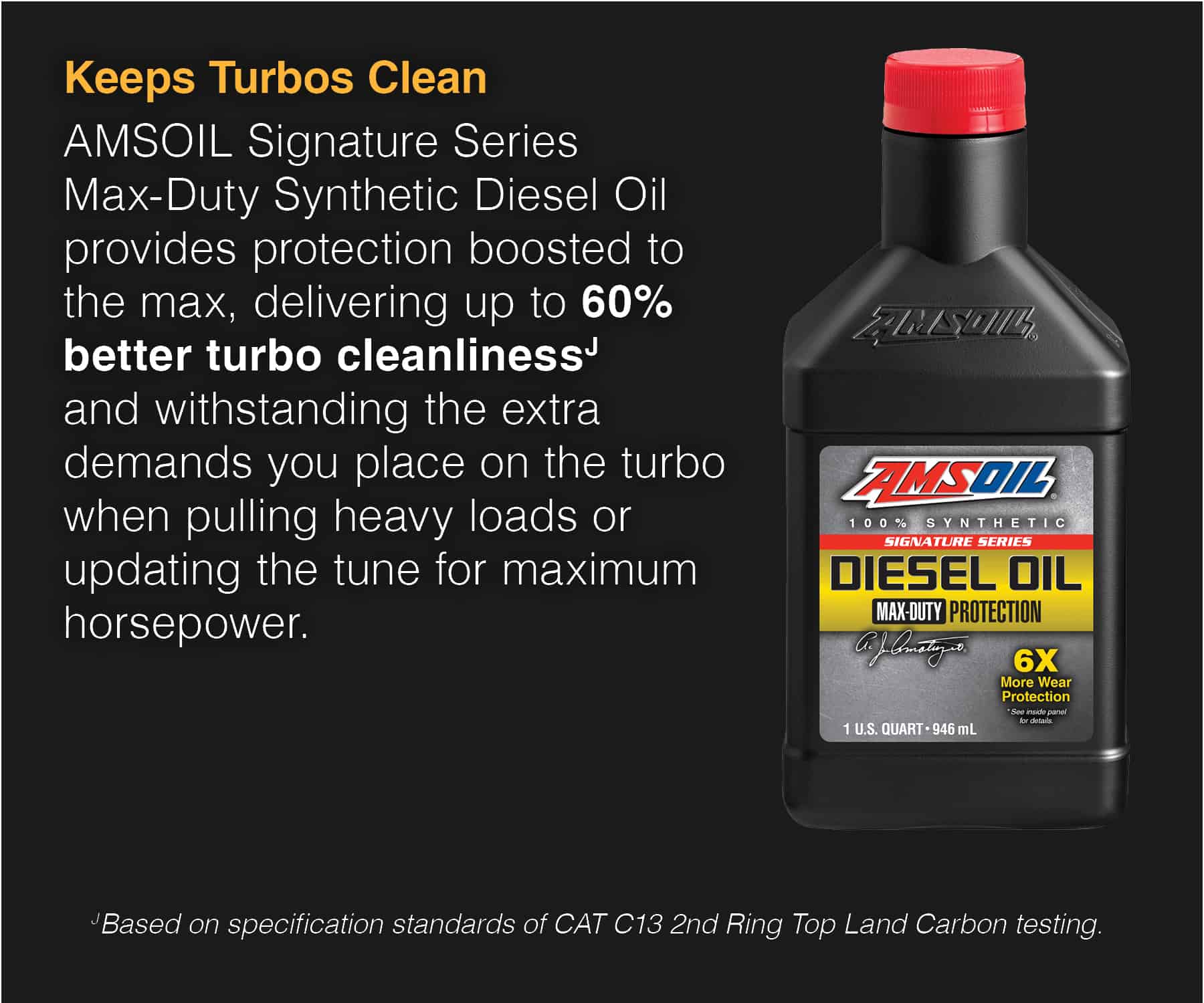
Signature Series Max-Duty Synthetic Diesel Oil
Signature Series keeps turbos clean.
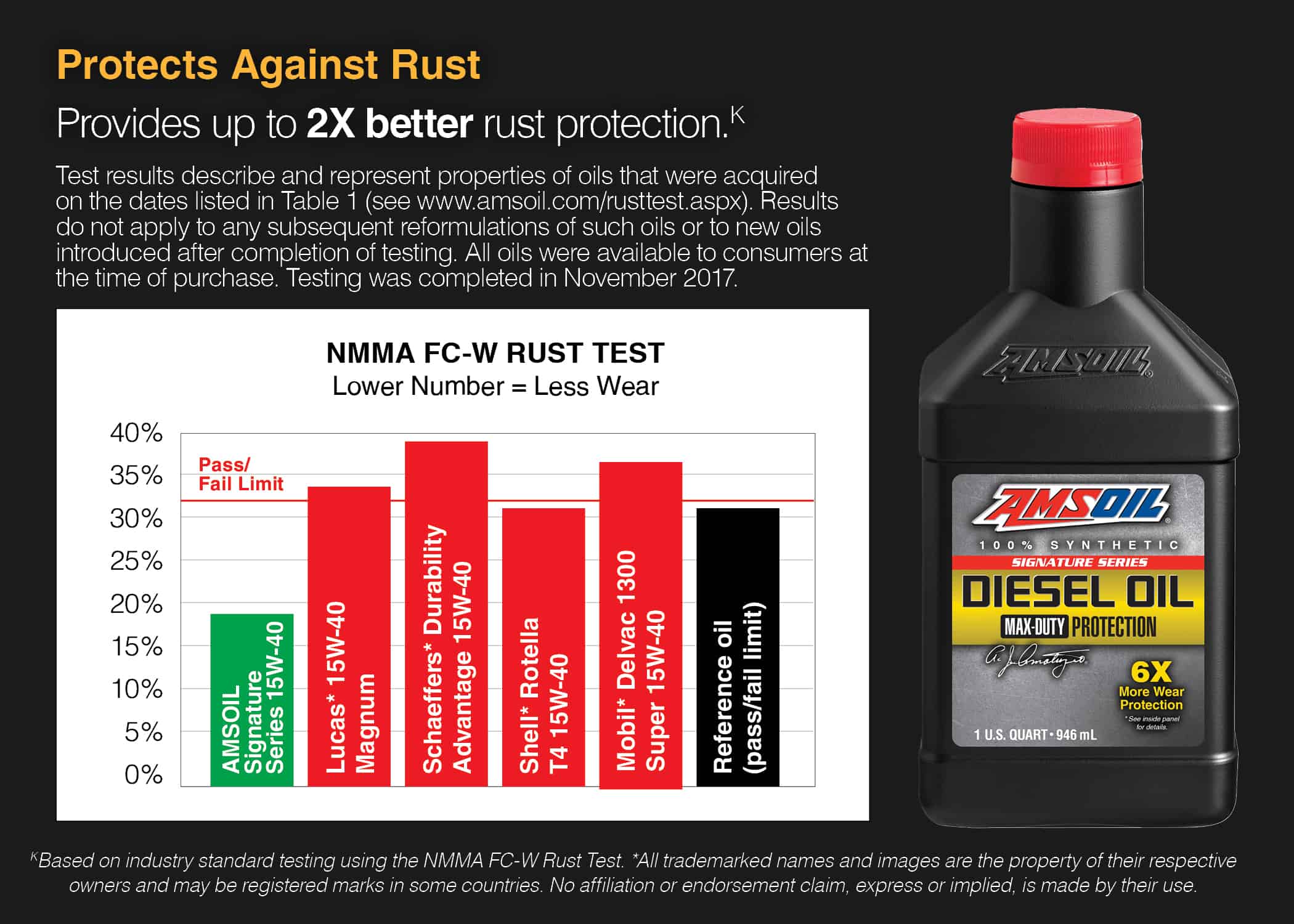
Signature Series Max-Duty Synthetic Diesel Oil
Signature Series protects against rust.
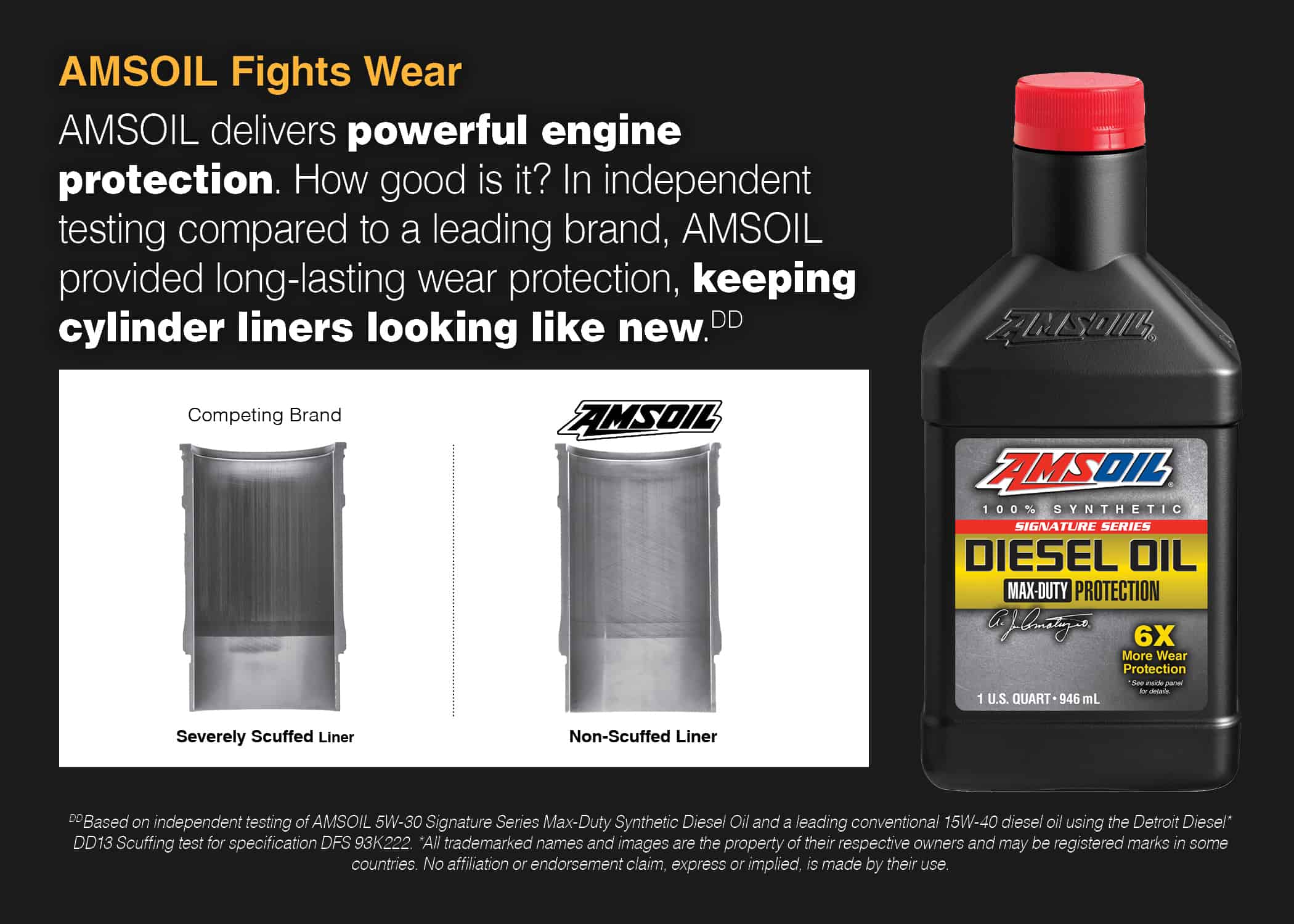
Signature Series Max-Duty Synthetic Diesel Oil
Signature Series fights wear.
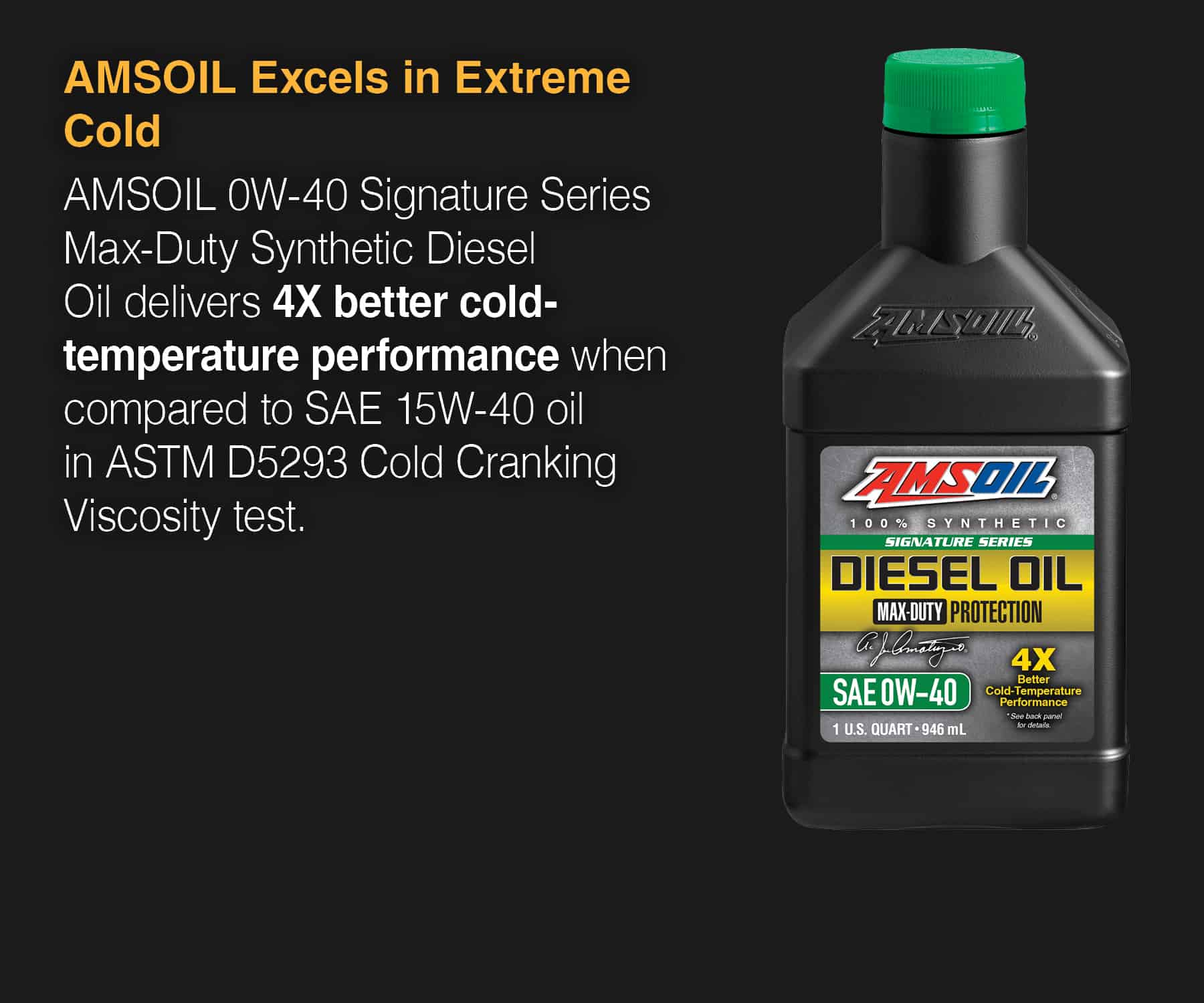
Signature Series 0W-40 Max-Duty Synthetic Diesel Oil
Signature Series excels in extreme cold.
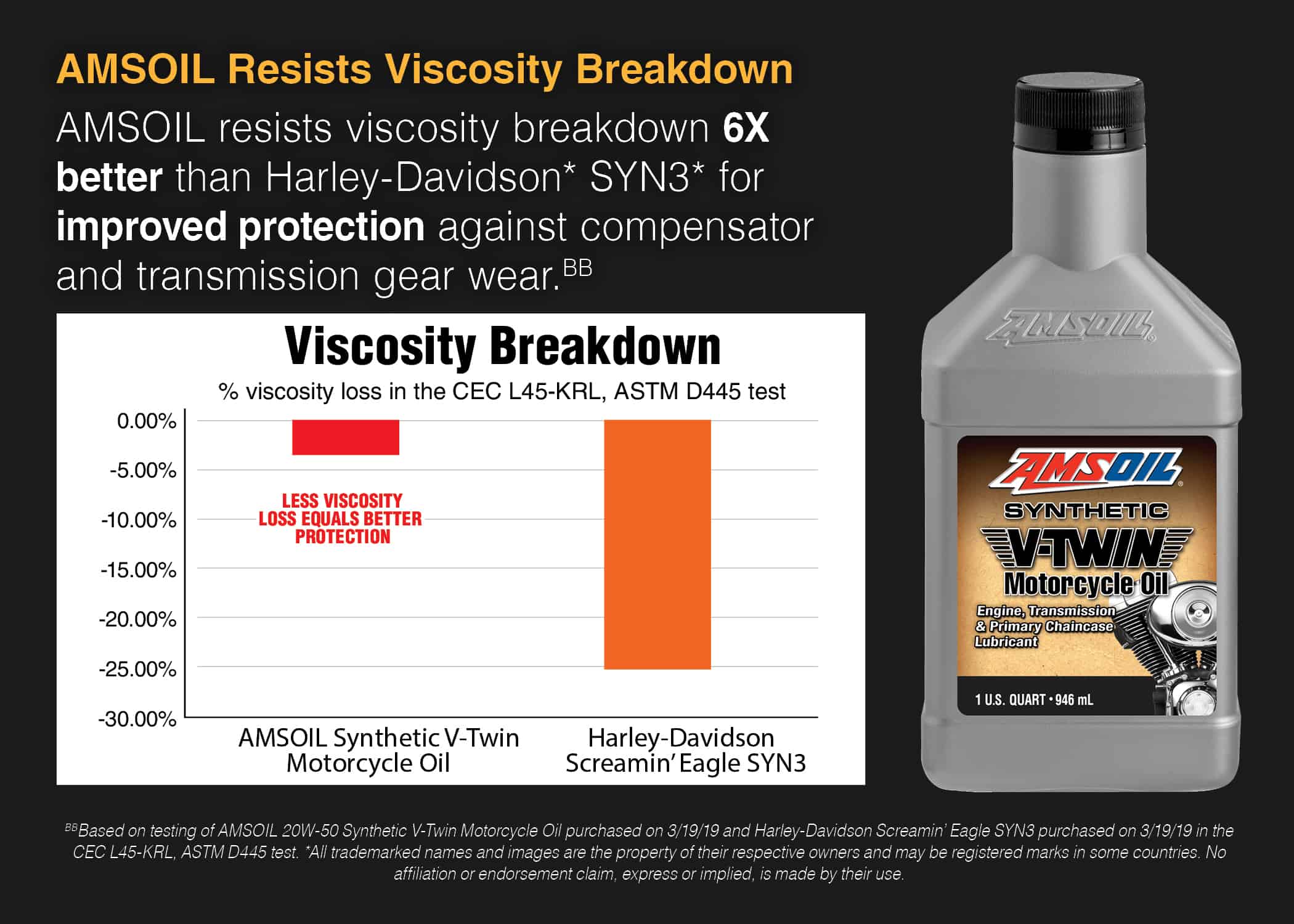
Synthetic V-Twin Motorcycle Oil
AMSOIL resists viscosity breakdown.
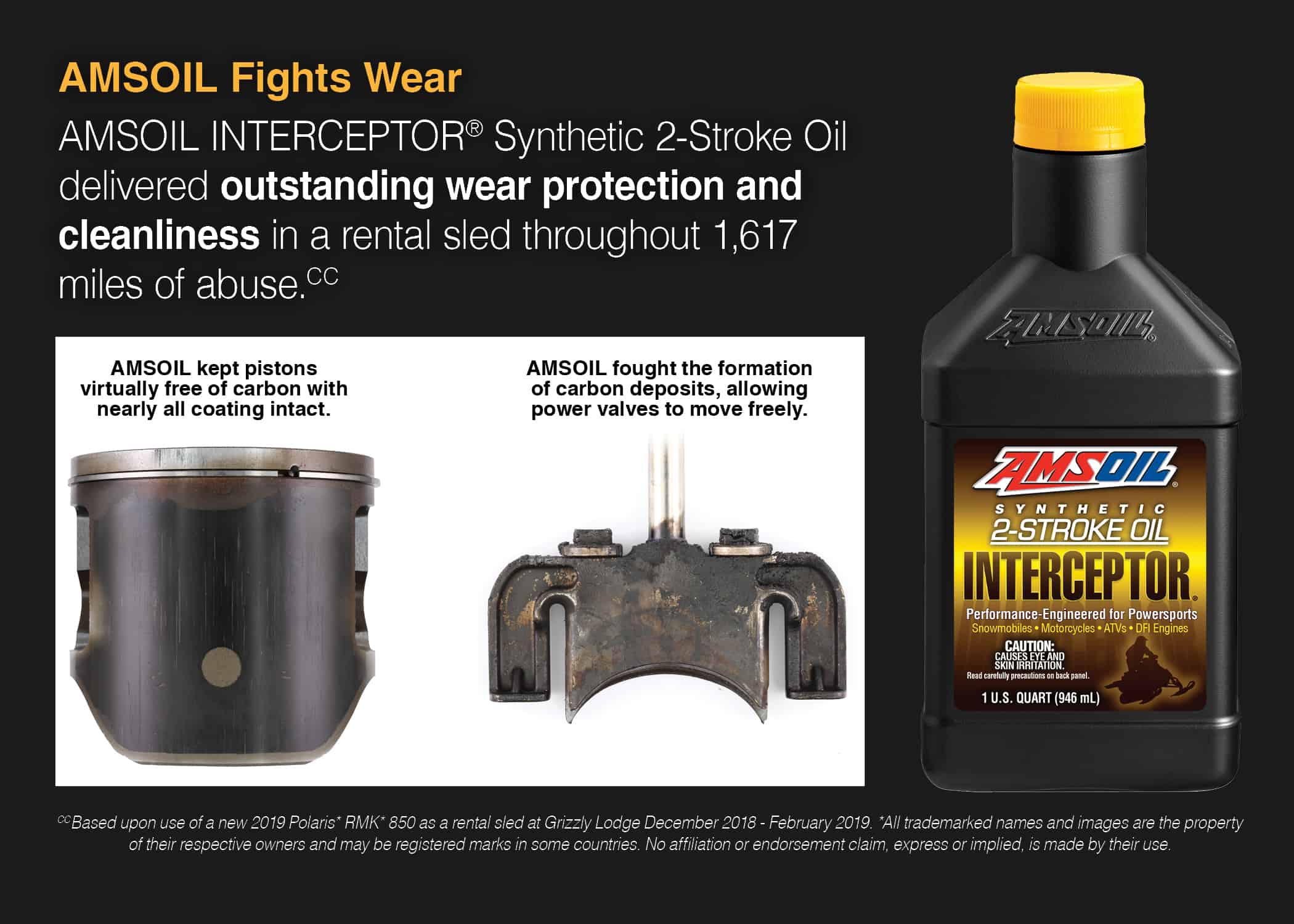
INTERCEPTOR® Synthetic 2-Stroke Oil
AMSOIL fights wear.
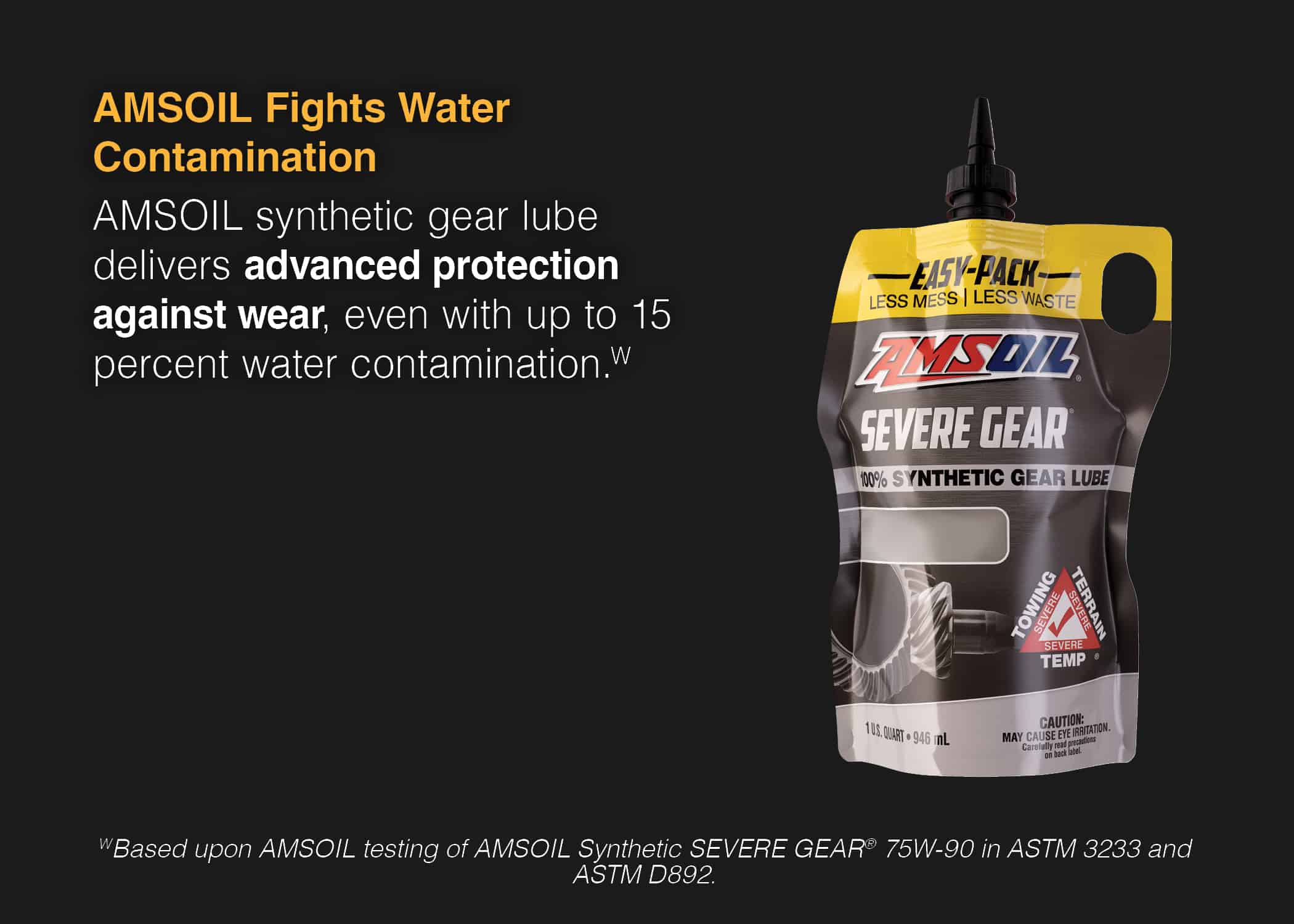
SEVERE GEAR® Synthetic Gear Lube
AMSOIL fights water contamination.
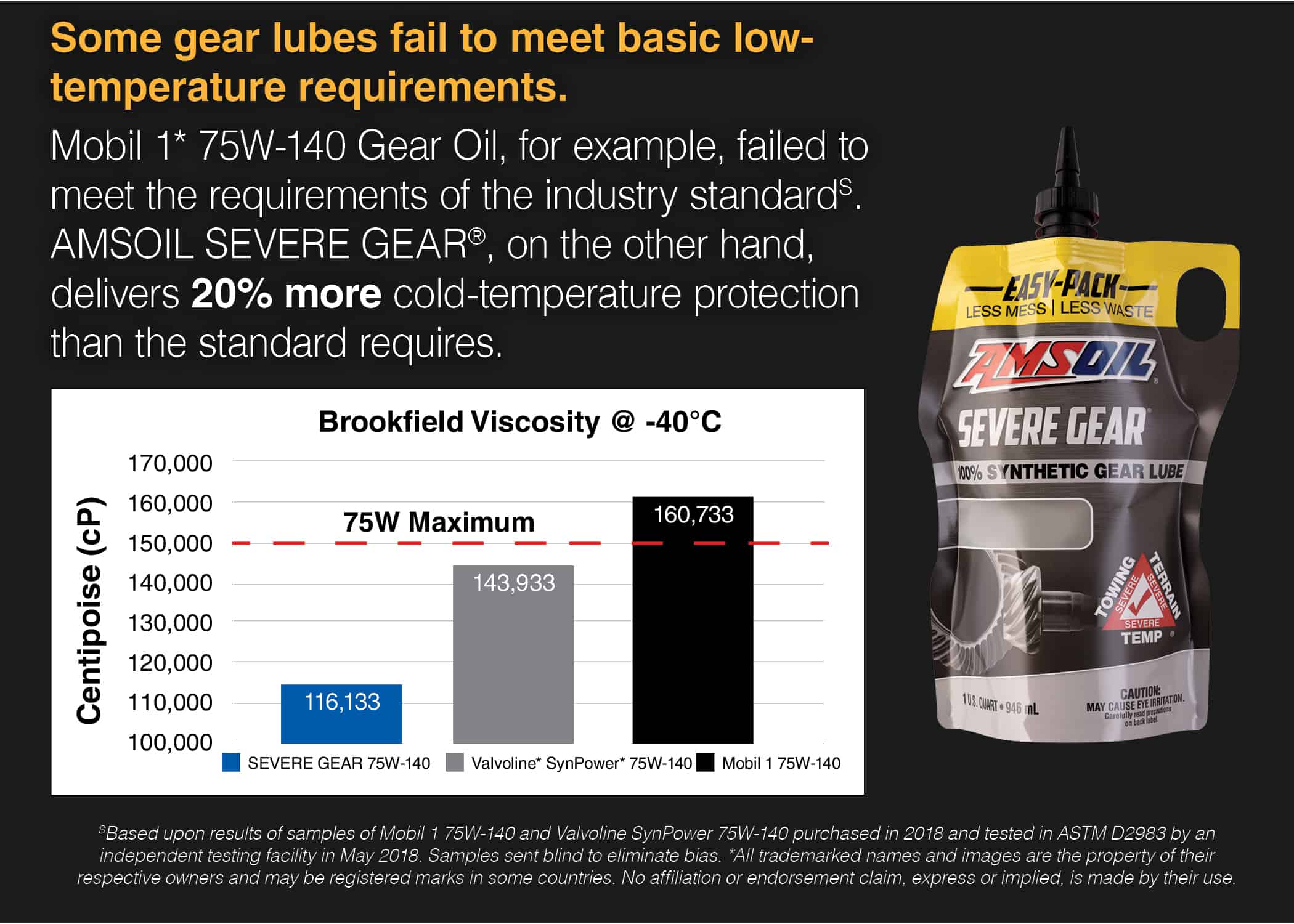
SEVERE GEAR® Synthetic Gear Lube
AMSOIL delivers more cold-temperature protection.
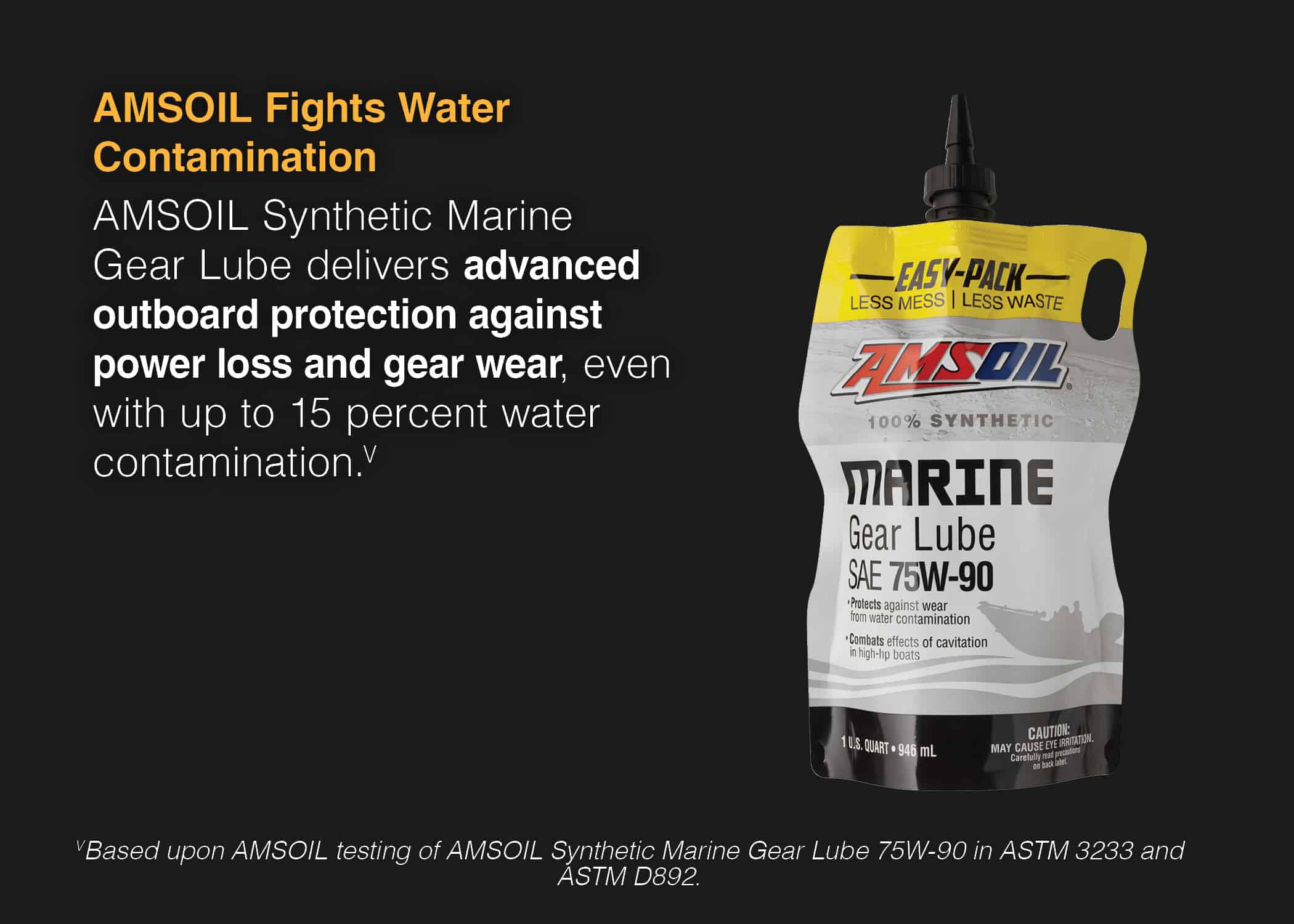
Synthetic Marine Gear Lube
AMSOIL fights water contamination.
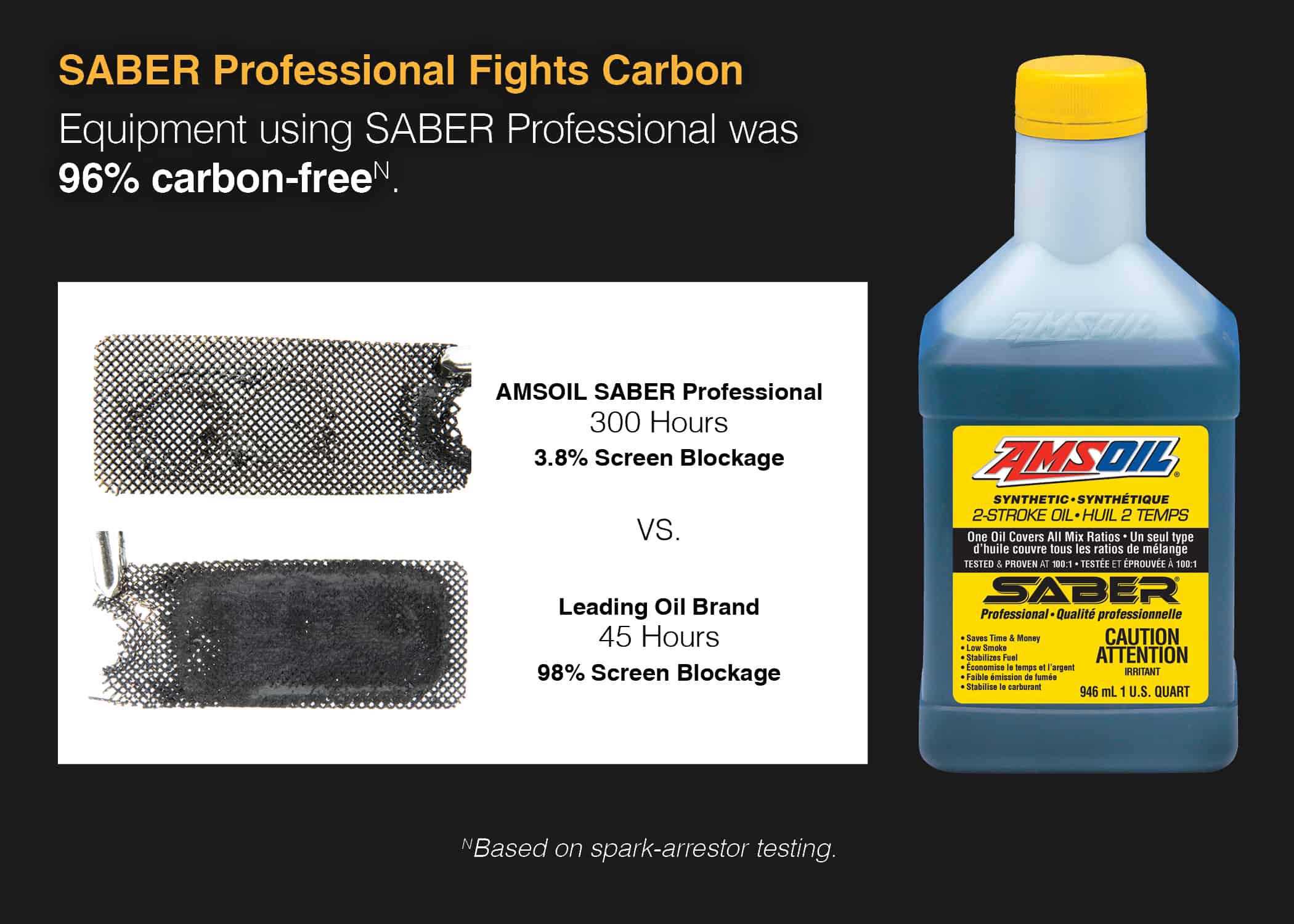
SABER® Professional Synthetic 2-Stroke Oil
SABER Professional fights carbon.
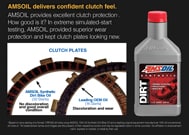
Synthetic Dirt Bike Oil
AMSOIL delivers confident clutch feel.
AMSOIL Product Info
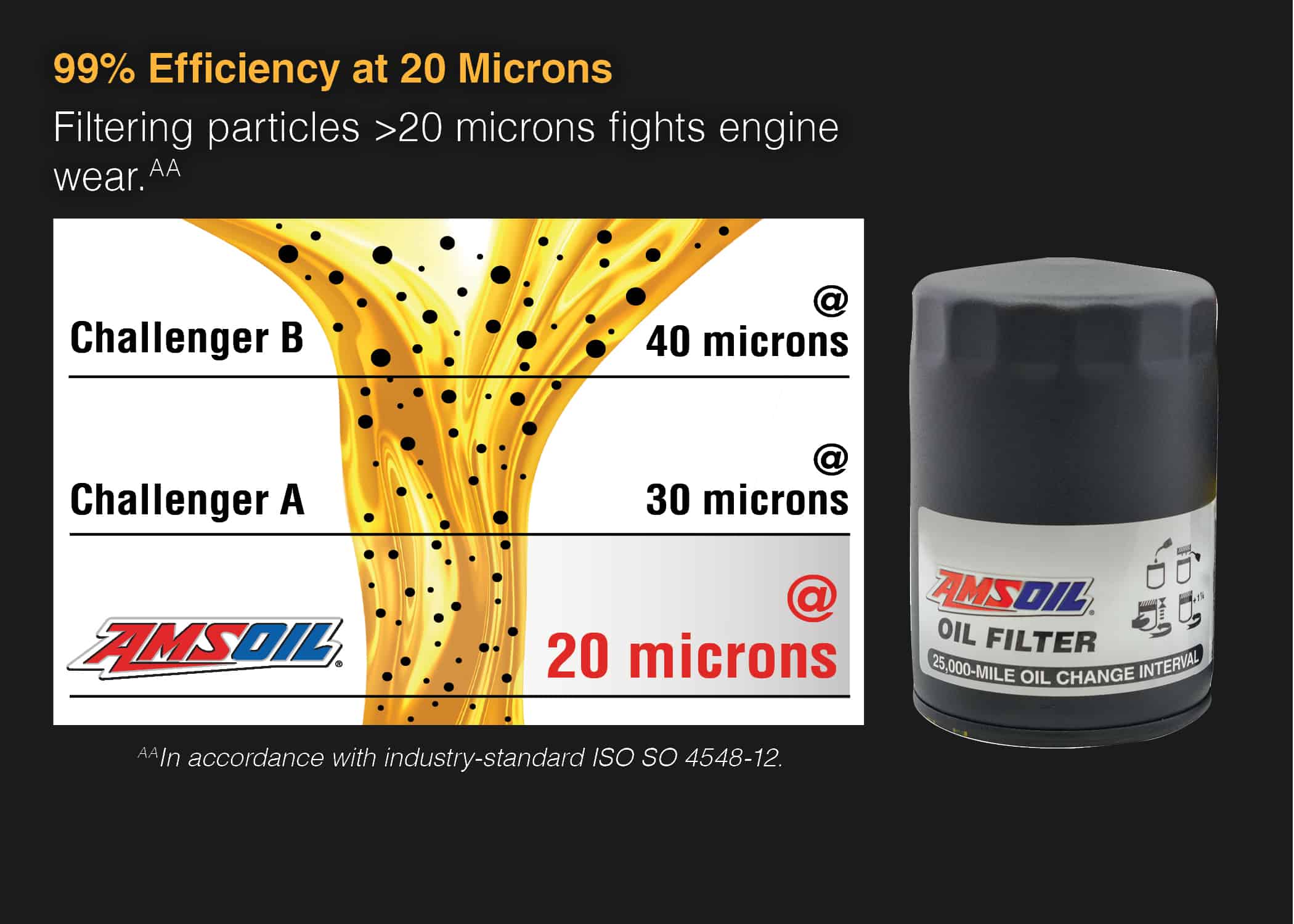
Oil Filters
99% efficiency at 20 microns.
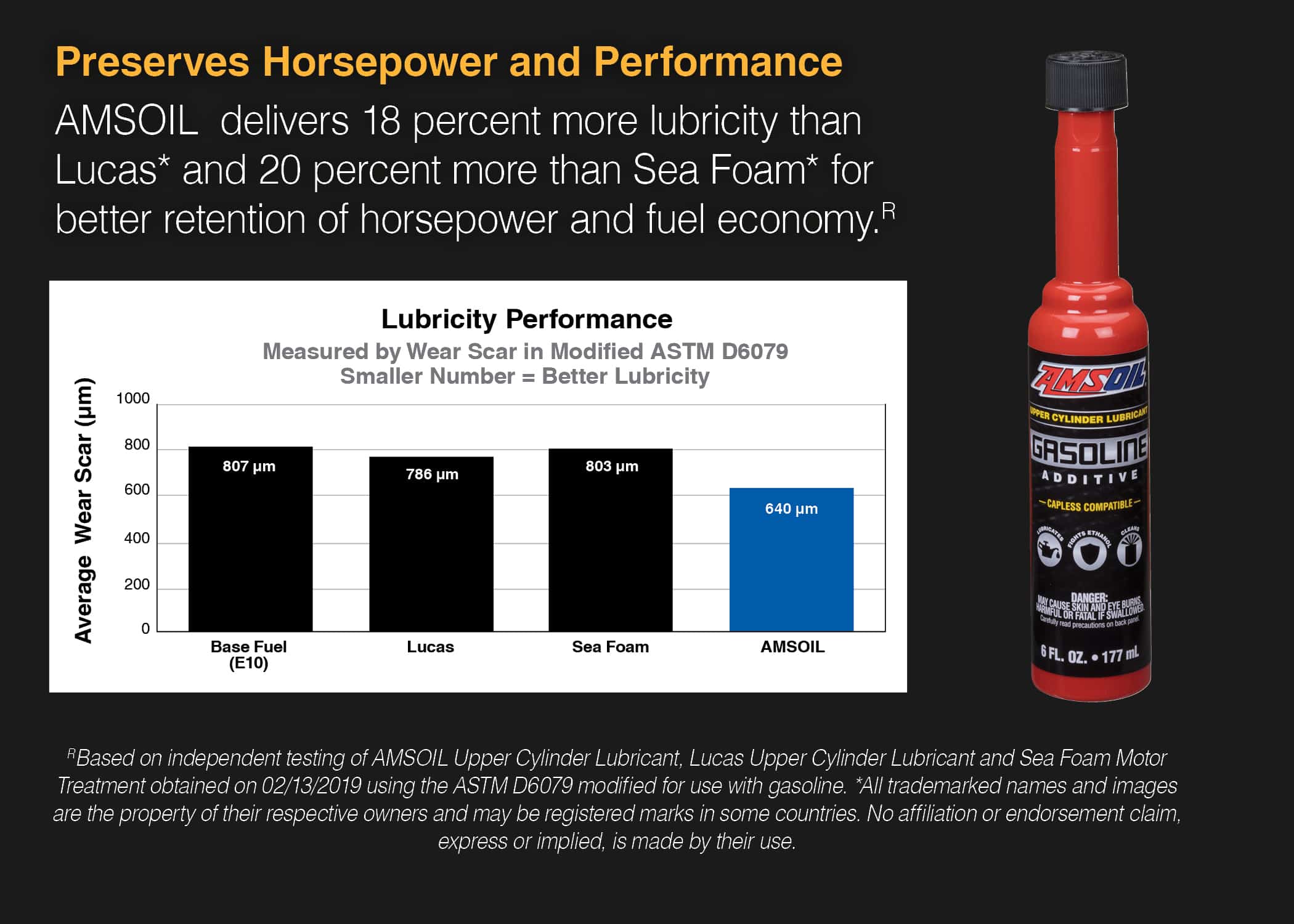
Upper Cylinder Lubricant
Preserves horsepower and performance.
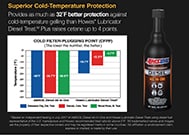
Diesel All-in-One
Superior cold-temperature protection.
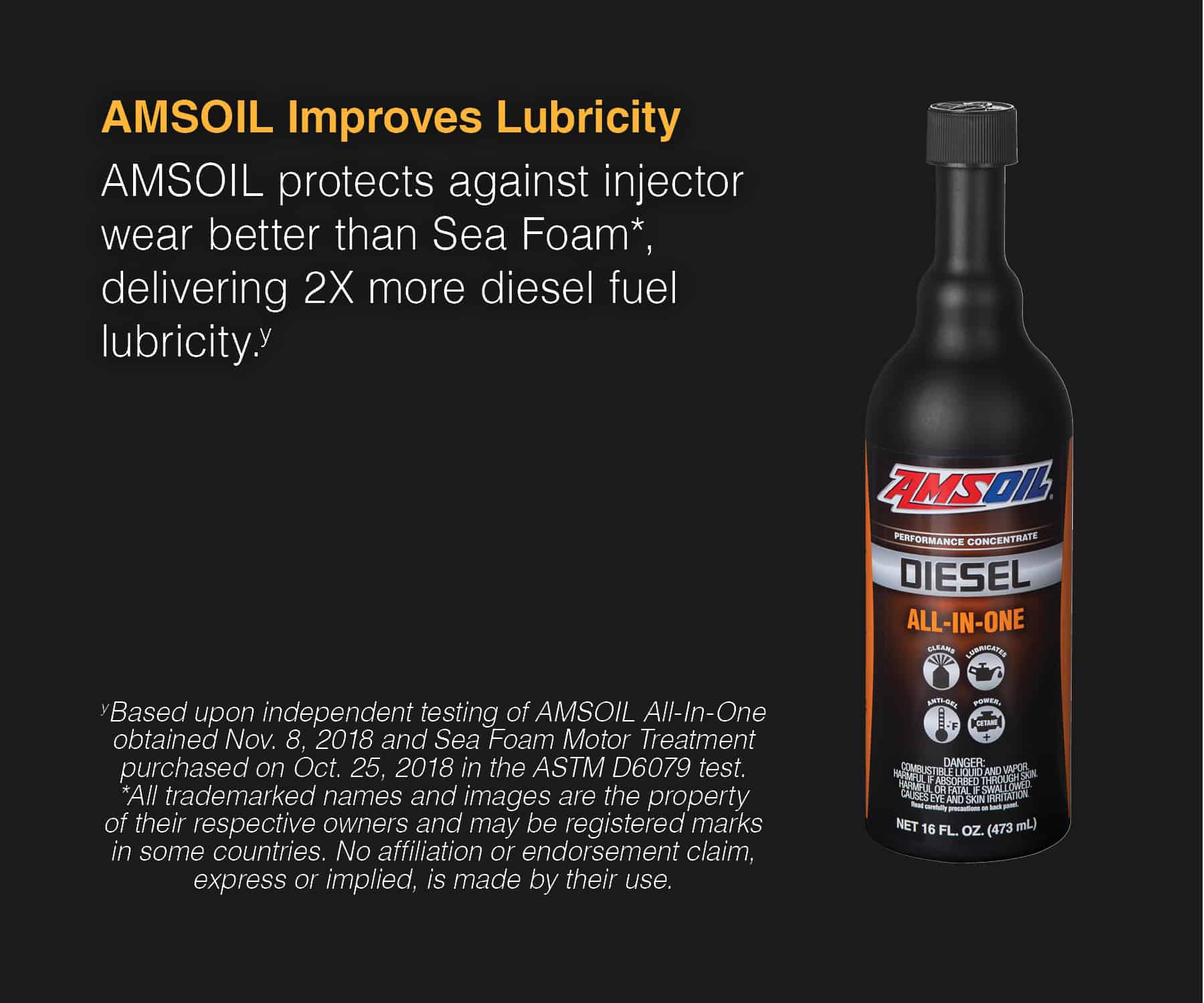
Diesel All-in-One
AMSOIL improves lubricity.
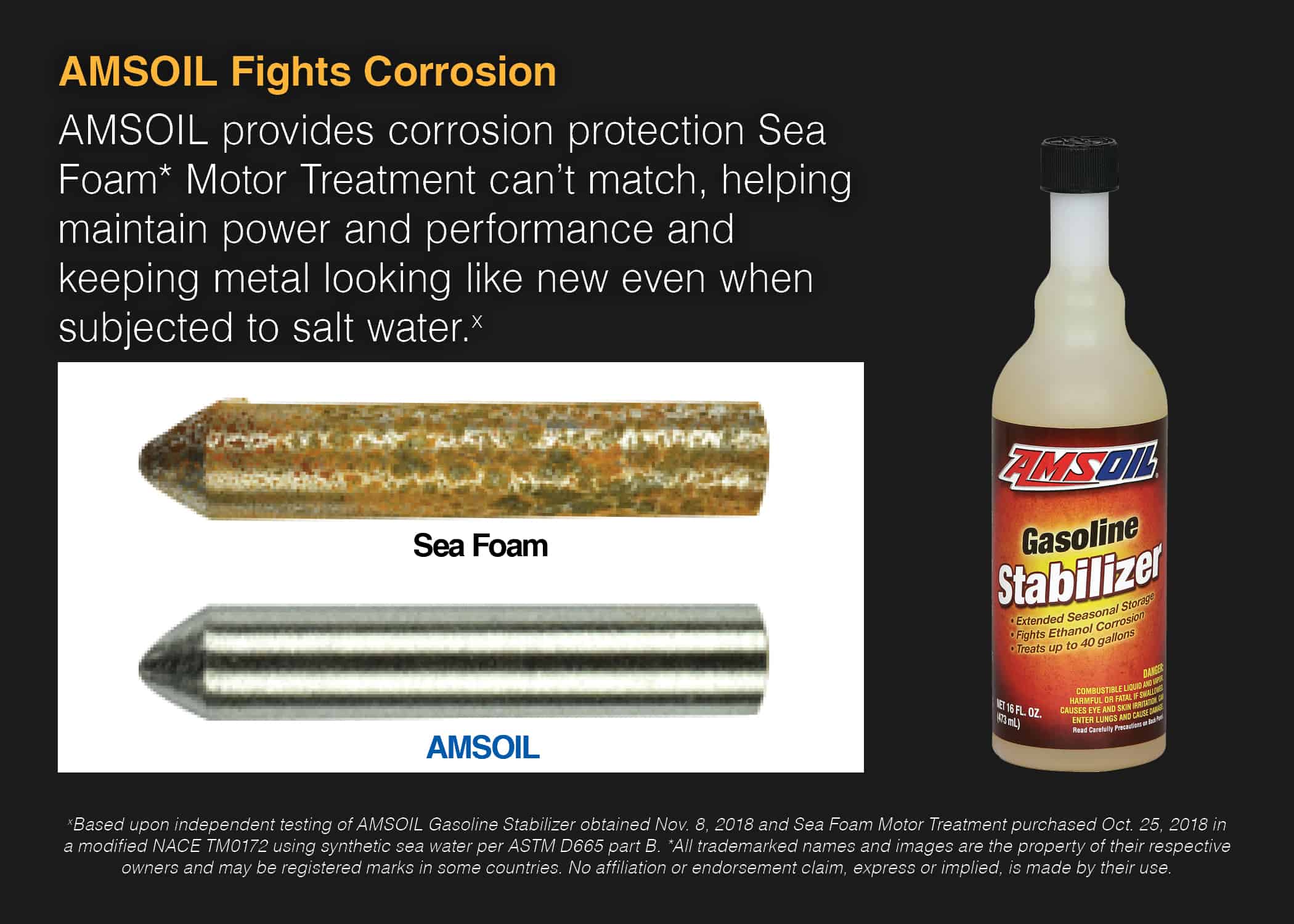
Gasoline Stabilizer
AMSOIL fights corrosion.
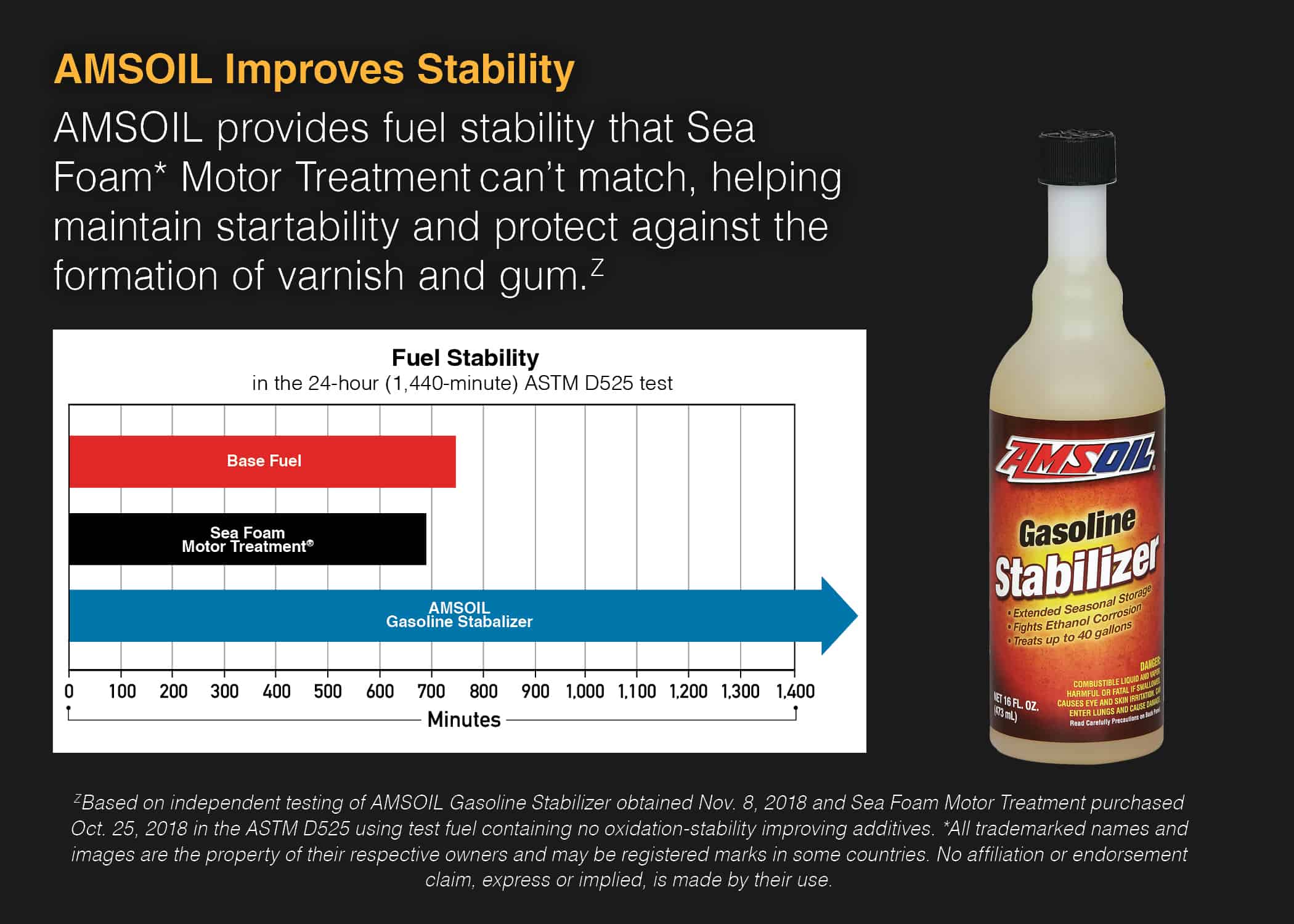
Gasoline Stabilizer
AMSOIL improves stability.
ECHO 100:1 String Trimmer Technical Study (G3470)
AMSOIL SABER® Professional Synthetic 2-Stroke Oil mixed at 100:1 resisted deposits and maintained power better than ECHO Power Blend XTended Life Universal 2-Stroke Oil mixed at 50:1.
A Study of LUCAS Semi-Synthetic 2-Cycle Oil in ECHO* String Trimmers (G3466)
AMSOIL SABER® Professional Synthetic 2-Stroke Oil mixed at 50:1 provided improved resistance to performance-robbing deposits and power loss compared to LUCAS Semi-Synthetic 2-Cycle Oil in ECHO string trimmers.
ECHO String Trimmer Technical Study (G3455)
AMSOIL SABER® Professional Synthetic 2-Stroke Oil resisted performance-robbing deposits and maintained power and performance in ECHO string trimmers.
3,469-Mile Case Study in Rotax E-TEC Engine (G3038) (1.1 MB PDF)
AMSOIL submitted the pistons from a Ski-Doo Rotax E-TEC 800R engine to an ASTM-calibrated rater following 3,469 miles of aggressive trail riding to reveal that AMSOIL INTERCEPTOR® Synthetic 2-Stroke Oil provided outstanding protection and prevented piston skirt scuffing and ring sticking.
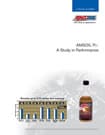
AMSOIL P.i. - A Study in Performance (G2543) (1 MB PDF)
8-page 4-color brochure detailing performance testing of AMSOIL P.i.
Redmax 100:1 Trimmer Technical Study (G3522)
AMSOIL SABER® Professional Synthetic 2-Stroke Oil mixed at 100:1 resisted deposits better than RedMax* 2-Stroke Engine Oil mixed at 50:1.
Frequently Asked Questions (FAQ's) about AMSOIL Product Info
Purchasing AMSOIL Products and Get AMSOIL Product Info
Answer: Order through the AMSOIL Online Store, call 1-800-777-7094 or find a local Dealer. Become a Preferred Customer and purchase AMSOIL products at wholesale cost, which is approximately 25 percent less than retail price.
Answer: Use the online AMSOIL Dealer Locator.
Answer: AMSOIL products have been available since 1972, when AMSOIL 10W-40 Synthetic Motor Oil became the first synthetic motor oil to meet American Petroleum Institute (API) service requirements. Today, AMSOIL manufactures synthetic lubricants for virtually all automotive, powersports, commercial and industrial applications.
Becoming an AMSOIL Dealer and Get AMSOIL Product Info
Answer: No. Dealers only need to sell if they want to earn commissions and bonuses. Even then, Dealers are encouraged to operate their businesses according to their own goals and schedules; AMSOIL does not place any pressure on its Dealers to make sales.
Answer: Residual income refers to money earned through indirect involvement. While it is possible to earn residual income as an AMSOIL Dealer, it requires an active group of successful personal group Dealers. Dealers who register other Dealers and help train them to succeed can continue earning commissions if they fall ill or cannot actively work their Dealerships for another reason. Building a successful personal group, however, requires a strong commitment to education and training.
Answer: No. Dealers purchase AMSOIL products at wholesale. pricing.
Answer: No. The AMSOIL registration fee is refundable if notification of intent is made to the sponsor or AMSOIL INC. within three days of the date shown on the application. Otherwise, a Dealer can simply choose not to renew his or her membership.
Synthetic Oil Basics and Switching From Petroleum to Synthetic
Answer: Applications require specific lubricant properties to deliver maximum performance and protection. AMSOIL carefully tailors its synthetic lubricants under the strictest quality control standards to provide the required properties for the intended application. Mixing AMSOIL synthetic lubricants is not only unnecessary, it may lead to reduced performance and even equipment failure.
Automatic transmission fluids offer a perfect example. Some transmissions require lubricants that contain specific frictional characteristics to reduce, or eliminate, clutch slippage, while other transmissions may require different frictional requirements. Mixing fluids recommended for different performance specifications may lead to a host of problems, including erratic shifting and transmission failure.
In some applications, mixing lubricants may not lead to equipment failure, but it will reduce performance. For example, if AMSOIL Signature Series 5W-30 Synthetic Motor Oil is installed in a vehicle, and its owner adds AMSOIL OE Synthetic 5W-30 Motor Oil to top off the engine if Signature Series isn’t available, the vehicle will continue to operate perfectly; Signature Series and OE Synthetic Motor Oil share a similar chemistry, and formulations of the same viscosity can be safely mixed. However, mixing lubricants will shorten Signature Series' life expectancy and reduce its performance benefits. AMSOIL does not support extended drain intervals where oils have been mixed.
To minimize the risk of performance- and warranty-related issues due to improper mixing, AMSOIL does not recommend mixing AMSOIL synthetic lubricants.
Answer: Motor oil, whether synthetic or petroleum-based, consists of molecular chains of hydrogen and carbon atoms, referred to as hydrocarbons. Petroleum crude oil is a thick, highly flammable dark-brown or greenish liquid with high energy density. Many contaminating elements exist in this complex mixture of hydrocarbons, including sulfur, nitrogen, oxygen and metal components such as nickel or vanadium. Petroleum crude oil is the raw material used for a wide variety of petrochemicals, including solvents, fertilizers, plastics and lubricants.
The oil refining process separates the various types of molecules in the oil by weight, resulting in a concentrated batch suitable for manufacturing products such as gasoline, LPG, kerosene or lubricant base oils. The chemical composition of conventional motor oil can vary substantially depending on the raw crude oil refining process.
While petroleum base oils are refined, synthetic base oils are manufactured and can achieve a higher performance level. Synthetic oil is chemically engineered for a certain molecular composition with a tailored and uniform structure. Such fine-tuned control over the final molecular composition of synthetic oils is the key to their superior performance properties. Designing molecular structures in a planned and orderly fashion results in molecules, and end-products, that are far more stable than their refined petroleum counterparts.
Answer: Most lubricating oils have other chemicals added to improve the overall performance of the fluid. Chemical additives are used to enhance the beneficial properties of the base oil or to make up for oil deficiencies. For passenger car motor oils, base oil makes up 70 to 80 percent of the final product; the other 20 to 30 percent is comprised of additive chemistry.
Additives help lubricants stand up to extreme operating environments. Even the best base oil would not be able to protect as well against the effects of heat, shearing forces, chemical and water dilution, corrosion and wear particles. In short, additives make good base oils even better. They give good base oils the performance benefits consumers have come to expect, such as multi-grade performance, extended drain intervals and extreme-pressure performance.
Anti-wear Agents chemically react to form a film barrier that prevent metal-to-metal contact and wear.
Antioxidants reduce the tendency for oil to react with oxygen and reduce sludge buildup.
Dispersants help suspend and disperse contaminants in the oil to keep engine surfaces free of sludge and deposits. They fight the build-up of corrosive acids and are most efficient at controlling low-temperature deposits.

Detergents help suspend and disperse contaminants in the oil to keep engine surfaces free of sludge and deposits. They are most efficient at controlling high-temperature deposits.
Extreme-Pressure Additives coat metal surfaces to help prevent close-contact components from seizing under extreme pressure. They are activated by high temperatures and high loads to react with the metal’s surface to form a sacrificial wear layer on components.
Foam Inhibitors reduce the surface tension of air bubbles and causes them to collapse.

Friction Modifiers can be used to give oil more 'slippery' characteristics. In engine oils, friction modifiers are used to increase the oil’s lubricity for the purpose of reducing friction and improving fuel economy.
Pour Point Depressants give high-viscosity oils good low-temperature properties. Pour point depressant polymers inhibit the formation of crystals to minimize low-temperature viscosity increase.
Rust & Corrosion Inhibitors form a protective barrier over component surfaces to seal out water and contaminants. While most rust and corrosion inhibitors work by forming a physical barrier, some rust inhibitors function by neutralizing acids.
Viscosity Index (VI) Improvers are long-chain polymers that help control the viscosity of multi-grade engine oils. They expand and contract as temperatures vary. High temperatures cause VI improvers to expand and reduce oil thinning; low temperatures cause VI improvers to contract and have little impact on oil viscosity.

Answer: Yes. Synthetic oil is perfectly safe for use in both new and high-mileage engines.
Answer: No. AMSOIL synthetic motor oils can be safely used during break-in. In fact, many vehicles, including the Dodge Viper and Chevrolet Corvette, are factory-filled with synthetic oil.
Answer: No matter how well motor oil is formulated, it won’t last forever. As the miles accumulate, motor oil begins to degrade and lose its lubricating effectiveness, while the additives are depleted. Severe-service driving conditions accelerate this process. Even with little mileage on the oil, oxidation, gases and moisture take their toll and start the degradation process, making it necessary to set both a mileage and time limit with oil change intervals. Excessive idling, common with fleet vehicles, puts additional stress on the oil, making it necessary to set an hours limit for vehicles subjected to excessive idling. Motor oil and vehicle manufacturers have developed general recommendations for the maximum amount of time or miles that the oil can be used; typically these intervals fall between 3,000 and 7,500 miles, depending on the type of service.
Many AMSOIL synthetic motor oils are specially formulated for extended drain intervals, providing maximum protection longer than other oils. Check the product data sheet for specific recommendations.
Answer: No. Synthetic oils do not cause engines to leak oil. In fact, AMSOIL synthetic motor oil is fully compatible with modern seal materials and is properly formulated to condition seals, keeping them pliable to prevent leakage.
Please follow us on Twitter, Facebook and LinkedIn.com
If you have comments, questions or suggestions about AMSOIL Product Info please contact us.
Thank you!

